-
Cyprus Space Research and Innovation Centre (C-SpaRC)
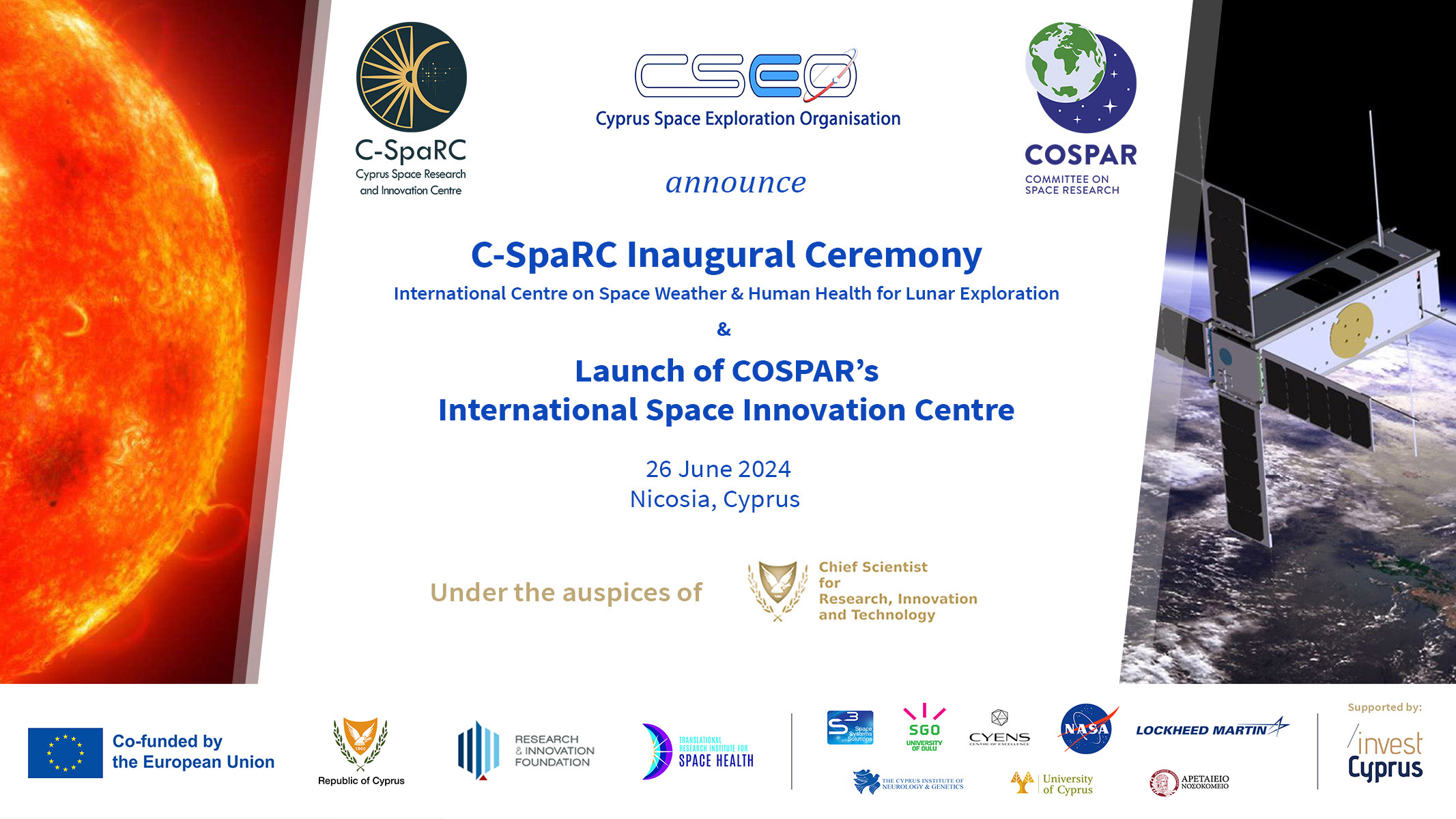
About C-SpaRC C-SpaRC Launch R&D Progress
-
Cyprus Space Research and Innovation Centre (C-SpaRC)

About C-SpaRC C-SpaRC Launch R&D Progress
Overview The Cyprus Space Research and Innovation Centre (C-SpaRC) is a pioneering initiative set to establish Cyprus as a leading hub for space research and innovation, addressing the need for a dedicated space infrastructure in Cyprus to support the growing space ecosystem and Cyprus Space Cluster. The project was awarded a competitive grant of €2.5 million in December 2023 under the Research and Innovation Foundation's (RIF) "Strategic Infrastructures/1222" call, with an additional $2 million leveraged funding from NASA. Notably, C-SpaRC has been placed under the auspices of the Committee on Space Research (COSPAR) as an International Space Innovation Centre, a first-of-its-kind initiative aimed at fostering international collaboration in space research and exploration. C-SpaRC, aligned with the Cyprus Space Strategy (2022-2027), is poised to become a groundbreaking initiative for the nation. Thanks to the strategic vision of the Research and Innovation Foundation (RIF), Cyprus is investing in strategic infrastructures to unlock its vast potential in the space sector. C-SpaRC, a first-of-its-kind project for Cyprus and a significant investment in this strategic infrastructure, will embark on an ambitious journey to foster innovation, drive economic growth, and position Cyprus as a key player in the global space industry. The C-SpaRC project is based on three distinct elements:
- Infrastructure: The creation of a state-of-the-art space research infrastructure, accessible to both the domestic and regional space ecosystem, fostering research, development, and innovation in space technologies.
- Research: The conduction of cutting-edge research in collaboration with foreign and domestic partners, focusing on space weather, its impact on human health, and the development of advanced space technologies.
- Innovation: The promotion of innovation within the domestic space ecosystem and the broader high-tech and startup communities, fostering a culture of entrepreneurship and technological advancement.
Space Weather, Space Situational Awareness, and C-SpaRC Space weather, the dynamic conditions in space driven by solar activity, poses significant risks to critical infrastructure on Earth and in orbit, including power grids, communication networks, satellites, aviation, and even human health. The ability to predict and mitigate these risks is crucial for the resilience of modern society and the safety of space missions. C-SpaRC aims to address this challenge by developing advanced space weather monitoring and prediction capabilities. C-SpaRC will establish a state-of-the-art Space Weather Space Situational Awareness (SWxSSA) monitoring center, leveraging cutting-edge technologies such as artificial intelligence (AI) and machine learning (ML) to analyze vast amounts of space weather data. By integrating data from ground-based observatories, satellite missions, and in-situ measurements from SmallSats, C-SpaRC will develop predictive models that can provide early warnings of potentially disruptive space weather events. This will enable stakeholders to take proactive measures to protect critical infrastructure and ensure the safety of astronauts and space assets.
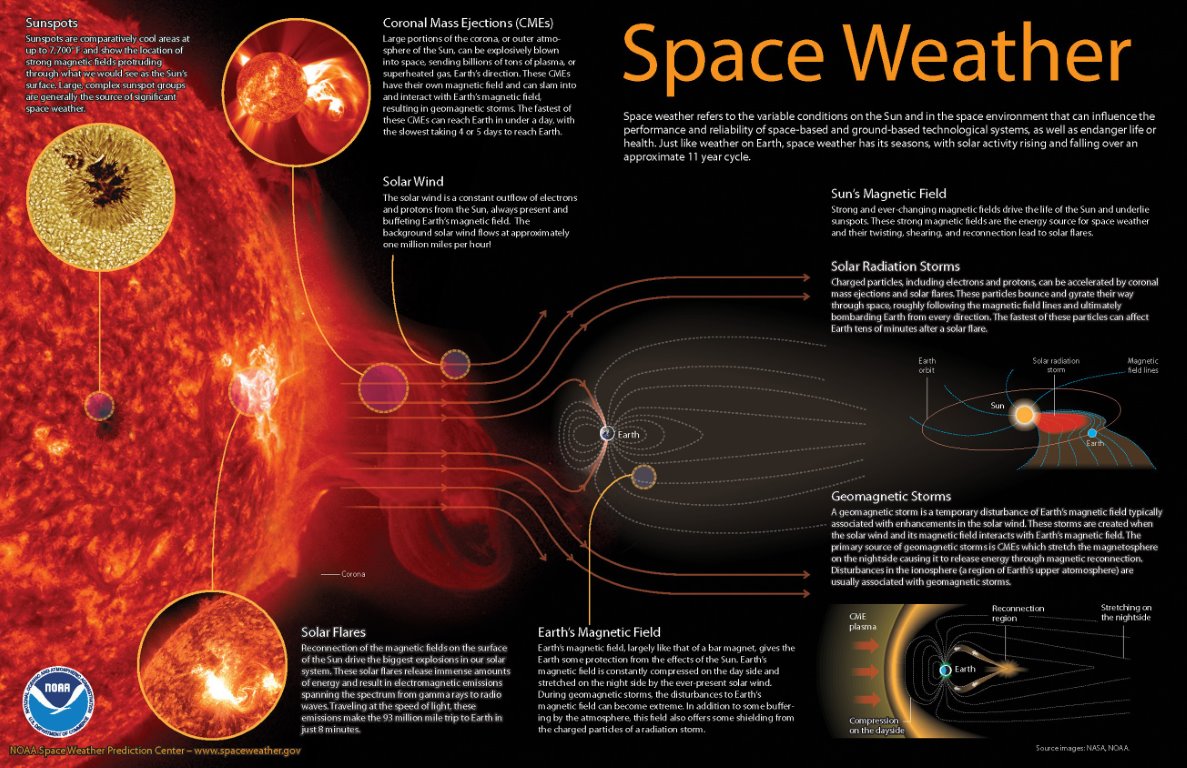
Infrastructure and Micro-satellite Production C-SpaRC will house a state-of-the-art space rapid prototyping, production, integration, space testing, and space qualifications infrastructure for small space assets, primarily focusing on micro-satellite research and development, production, and services. The infrastructure will include a mission control center, mission data monitoring and storage capabilities, space situational awareness monitoring, computational analytics for mission data and space weather (SWx), and a space experiments testbed for designing micro-satellite payloads.
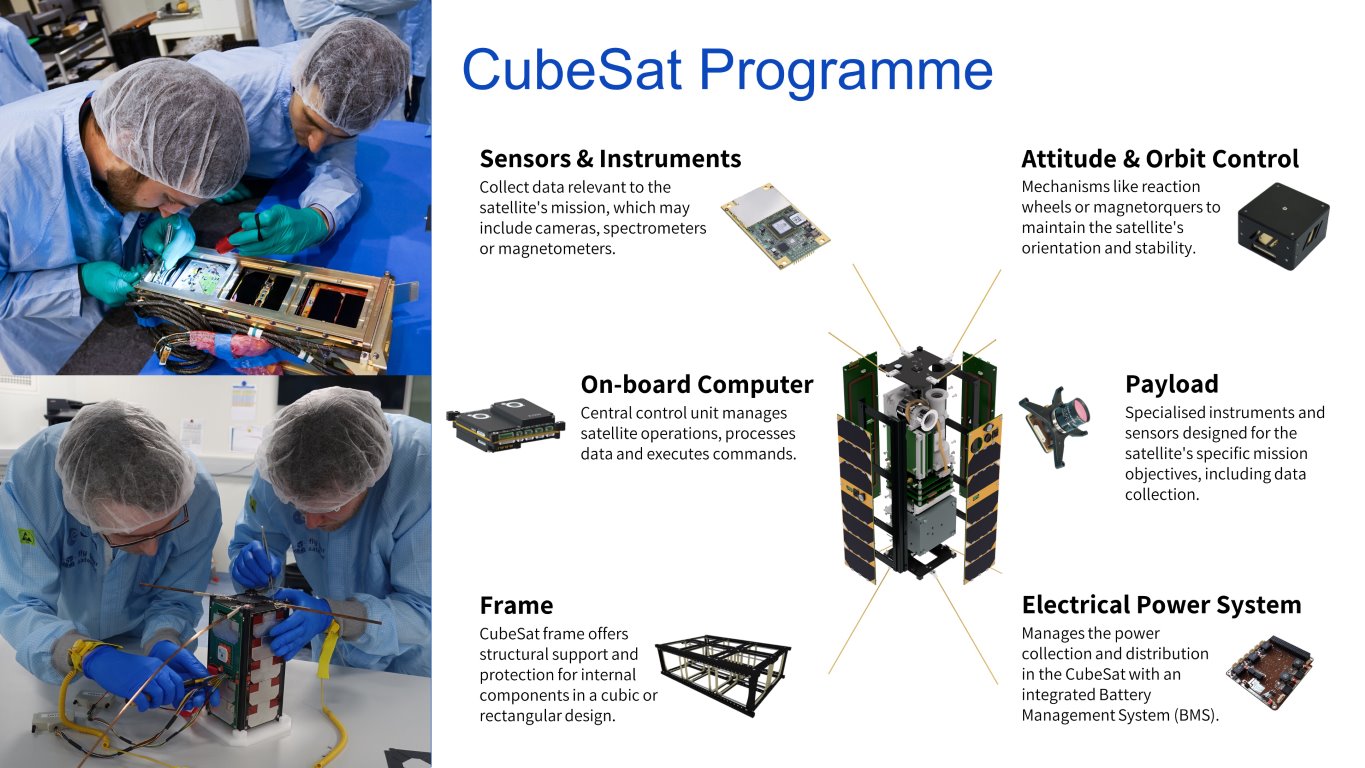
The infrastructure includes a full set of equipment for space qualifications (such as a thermal vacuum chamber and a vibration facility), a clean room for systems integration, ground control and communication systems, and an instrument calibration and testing setup.
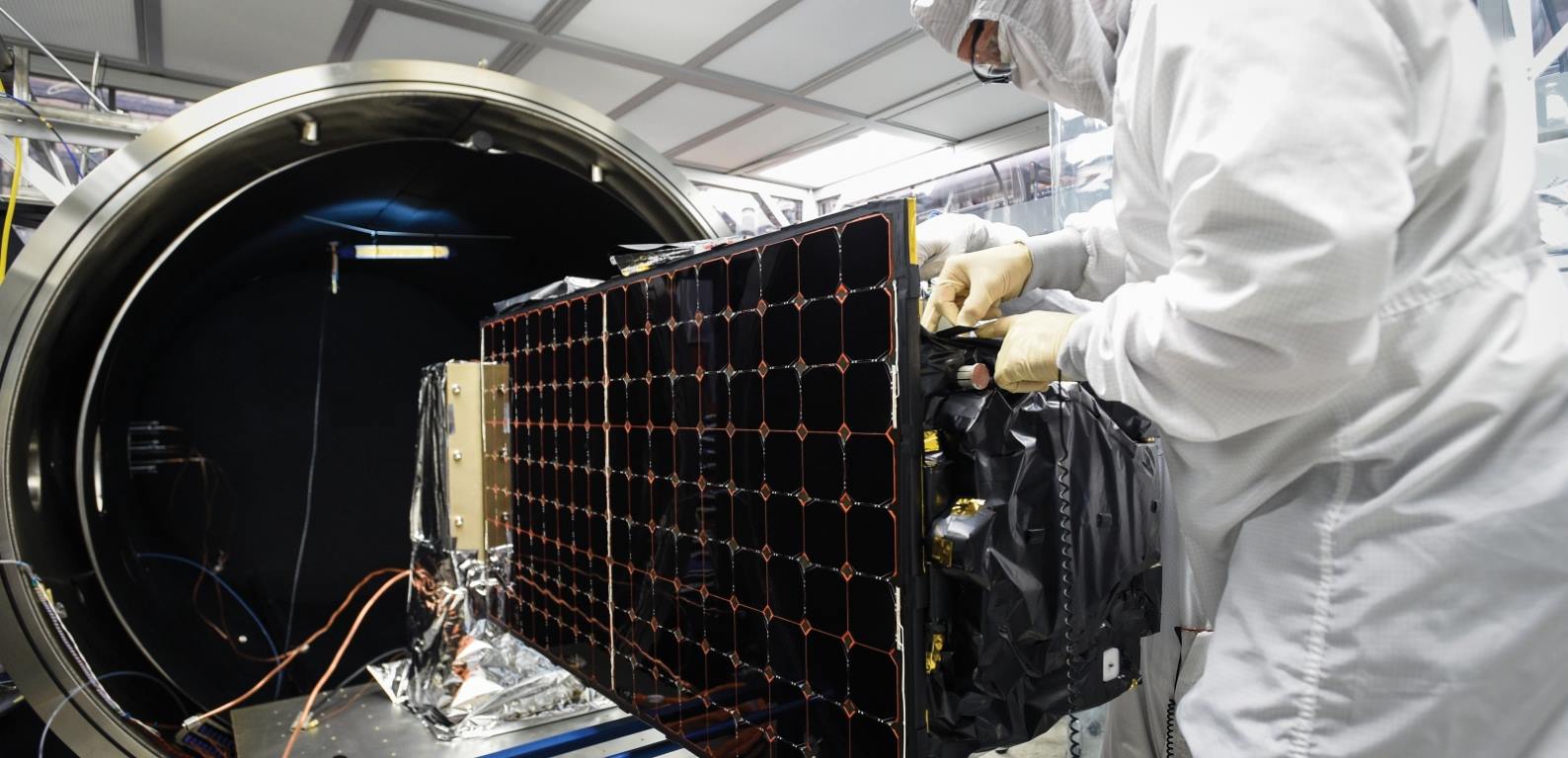
Notably, the facility will house a state-of-the-art selective laser melting (SLM) large 3D metal printer, enabling the production of complex and highly optimised space components. Only a handful of these large SLM 3D metal printers exist globally. The SLM 3D metal printer is a cutting-edge additive manufacturing technology to create three-dimensional metallic objects. This technology offers several advantages over traditional manufacturing methods, including greater design freedom, reduced material waste, and the ability to produce complex geometries and lightweight structures. In the context of space research, the SLM 3D metal printer will enable the rapid prototyping and production of customised satellite components, such as antennas, brackets, and structural elements, with optimised performance and reduced weight. This will not only accelerate the development of new space technologies but also contribute to cost reduction and improved sustainability in the space industry and wider industry in rapid prototyping.
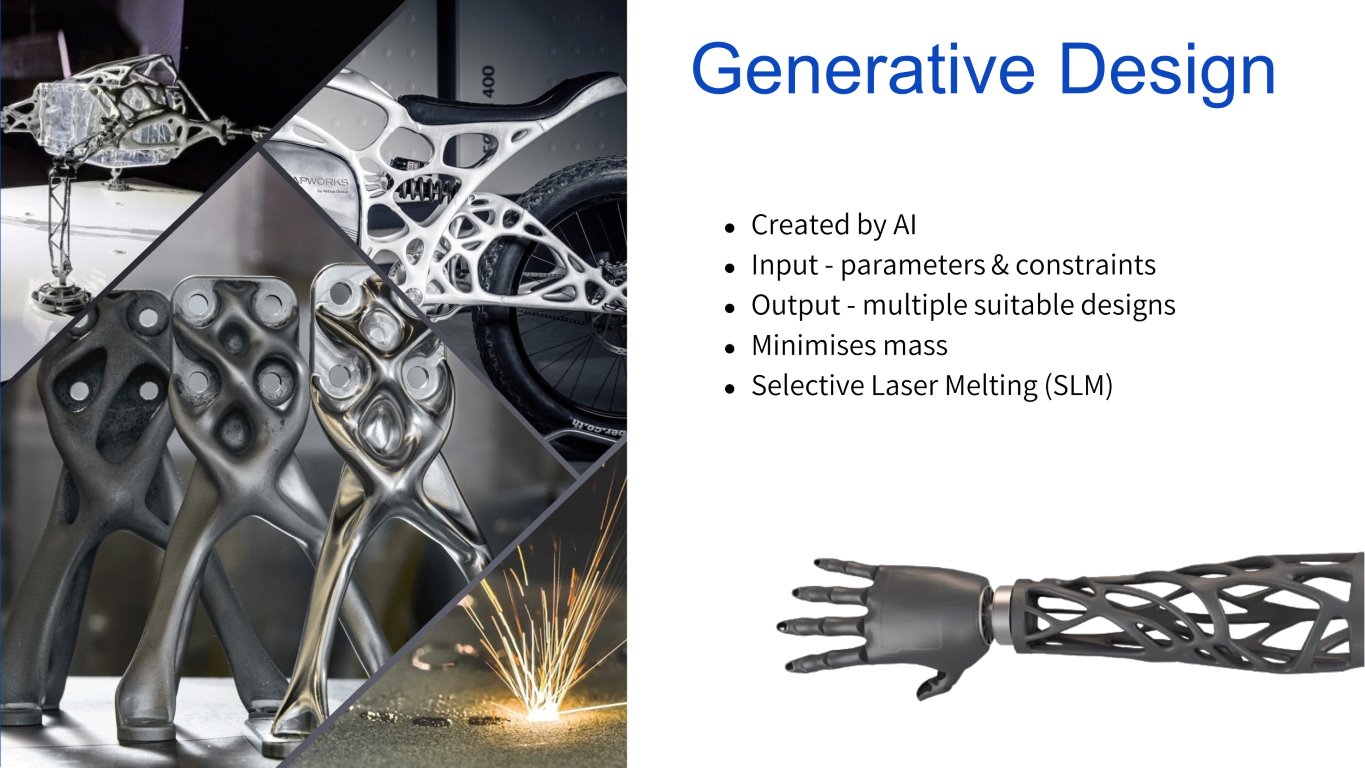
Partnerships and Collaborations C-SpaRC's contractual partners and and collaborators span a diverse range. Foreign Research Organisations (FRO):
- Translational Research Institute for Space Health (TRISH): A NASA-funded leading institute, TRISH will collaborate on research into the effects of space weather on human health and the development of countermeasures.
- Sodankylä Geophysical Observatory (SGO): A Finnish leading research institute specialising in SWx science, SGO will contribute its expertise in SWx research and its forecasting.
Domestic Partners:
- CYENS Centre of Excellence: A leading research center in Cyprus, CYENS will contribute its expertise in AI and data analytics applied on SWx.
- Cyprus Institute of Neurology & Genetics: A leading research center in Cyprus specialising in biomedical research, the institute will contribute expertise in human biology and genetics.
- Space Systems Solutions (S3) Ltd: A Cypriot leading space technology company, S3 will contribute expertise in SmallSat development and systems integration.
- University of Cyprus: The University of Cyprus will contribute expertise in microelectronics and the development of a SmallSat payload.
- Aretaeio Hospital: A leading healthcare provider in Cyprus, Aretaeio Hospital will collaborate on research into the effects of space weather on human health on the ground.
Associate Partners:
- COSPAR: The Committee on Space Research, the world's leading organisation promoting space research, will provide a platform for international collaboration and knowledge exchange.
- Lockheed Martin: A global leader in aerospace and defense, Lockheed Martin will provide expertise in space systems engineering and technology.
- NASA MSFC: The NASA Marshall Space Flight Center will provide the CARLO instrument, expertise, and access to resources for C-SpaRC's research activities.
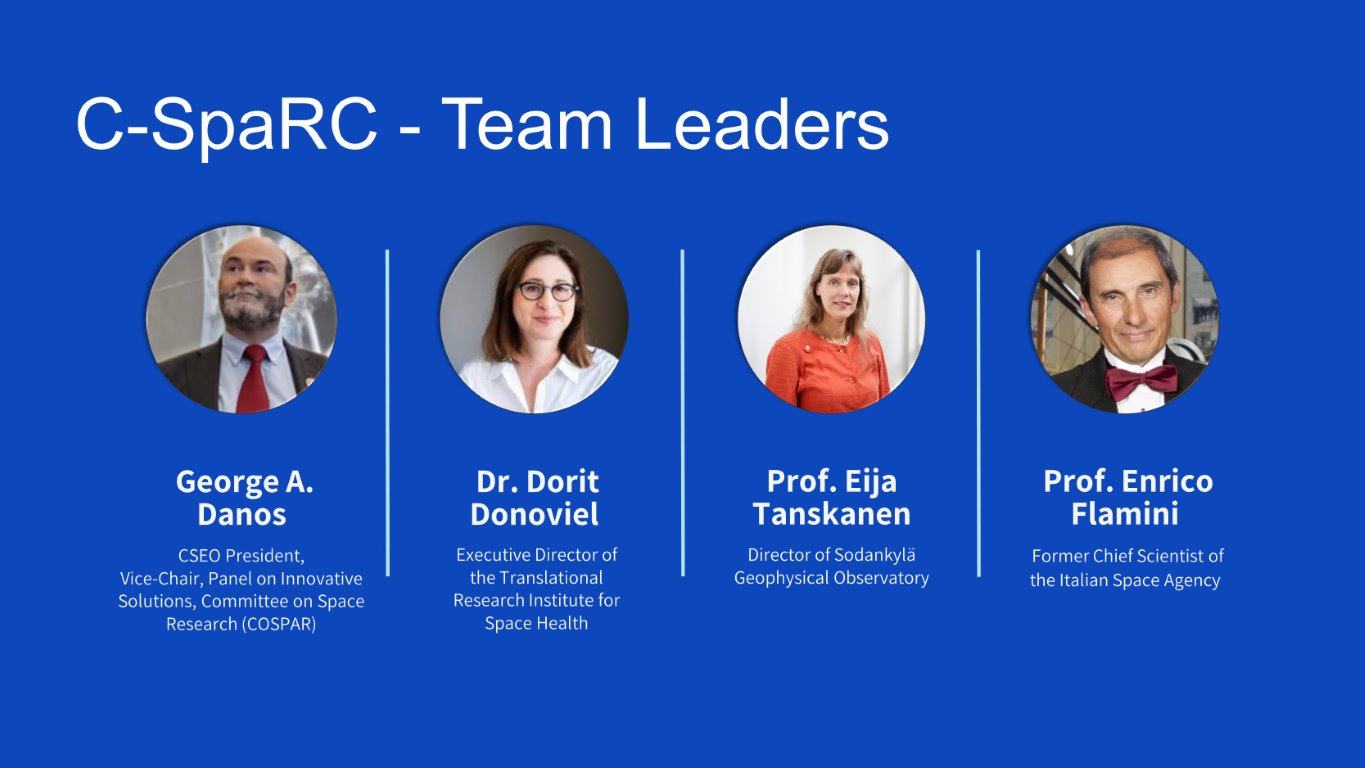
Research Focus C-SpaRC's research will primarily focus on space weather, its impact on human biology, and the development of advanced space technologies. The impact of space weather extends beyond astronauts in space and can affect human health on Earth. Solar events and geomagnetic disturbances have been linked to various health issues, including cardiovascular problems, neurological disorders, and mood fluctuations. C-SpaRC will conduct a comprehensive study on these effects, contributing to the development of preventative measures and treatments. Specific research objectives include:
- Developing AI-powered predictive models for space weather events and their potential impact on Earth's magnetosphere and human health.
- Studying the effects of space weather on human physiology and psychology, both in space and on Earth.
- Designing and manufacturing SmallSats equipped with specialised sensors to collect space weather data.
- Preparing astronauts for long-duration missions by studying the effects of space radiation on human tissues using "organs-on-a-chip" (OoC) technology.
The knowledge gained from these studies will not only benefit astronauts but will also have downstream applications in personalised medicine. By creating personalised OoC models, researchers can study the unique biology of individuals under various conditions, leading to the development of tailored drugs and medical solutions for a range of health issues, including those related to the sun's impact on human health.
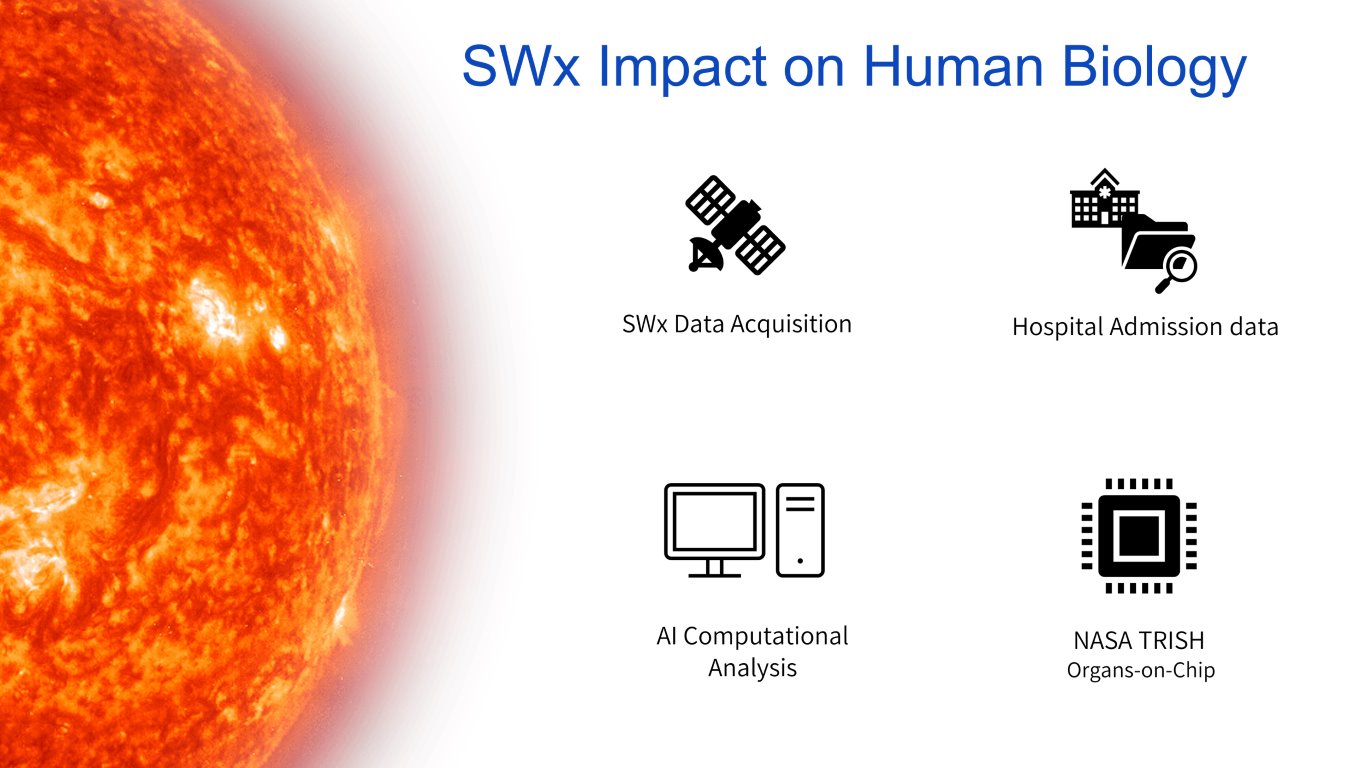
International Collaboration and the Artemis Program C-SpaRC will actively collaborate with NASA's Artemis program, contributing to the safe return of humans to the Moon and the establishment of lunar bases. The center will leverage its expertise in space weather research and human factors to mitigate the risks associated with long-duration space missions.
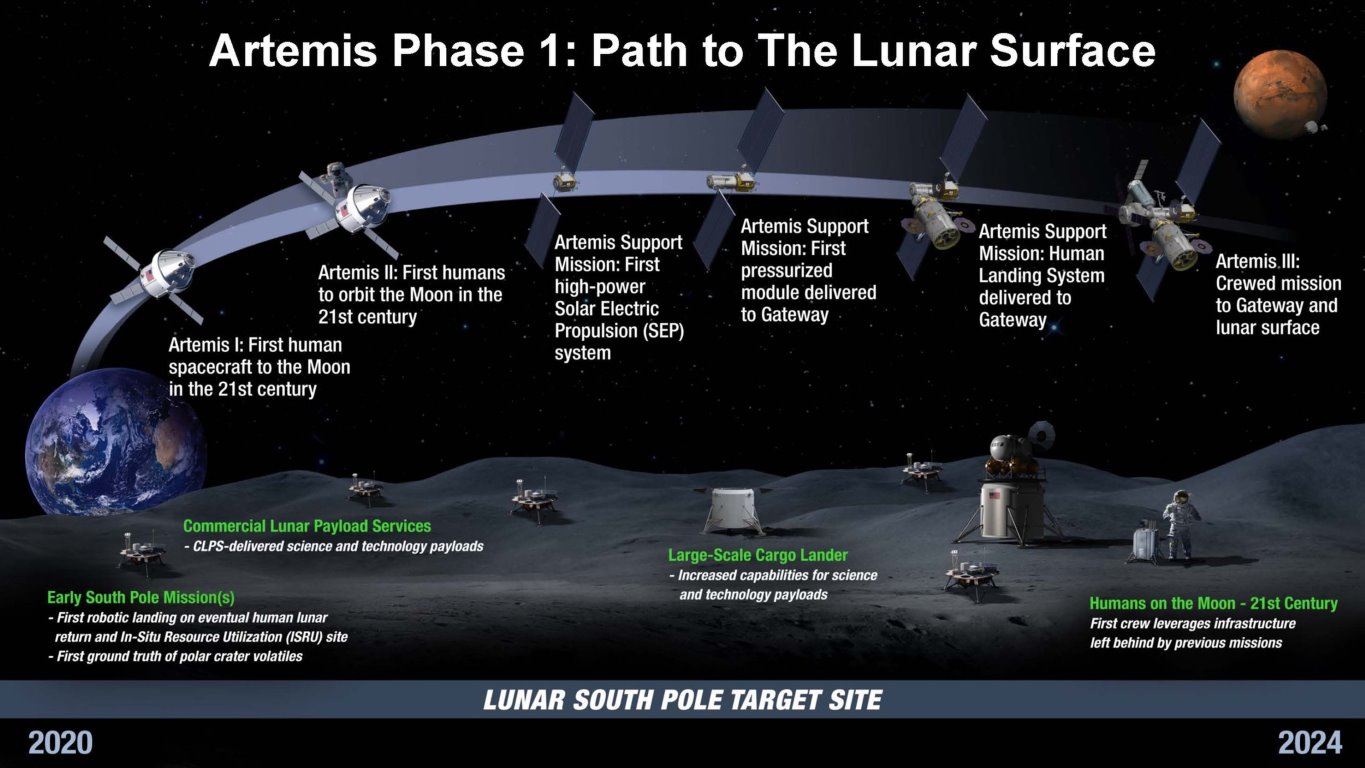
NASA TRISH C-SpaRC will work closely with NASA's Translational Research Institute for Space Health (TRISH) to conduct joint research on the impact of space weather on human health. This collaboration will leverage funding from NASA to support the development of "organs-on-a-chip" payloads for future Artemis missions, enabling researchers to study the effects of space radiation on human tissues in a microgravity environment. NASA MSFC and COSPAR Impact NASA's Marshall Space Flight Center (MSFC) is contributing to C-SpaRC's research efforts by providing the Charge Analyzer Responsive to Local Oscillations (CARLO) sensor, a specialised instrument for measuring ionospheric turbulence. This collaboration, facilitated through the COSPAR Impact program, will enable joint research on the correlation between space weather and human health, ultimately contributing to the safe return of humans to the Moon. The research undertaken by C-SpaRC in collaboration with NASA MSFC and TRISH will be conducted within the framework of the center's work packages (WPs), ensuring a coordinated and integrated approach to addressing the challenges of space weather and its impact on human health. COSPAR's Role COSPAR has placed C-SpaRC under its auspices as an International Space Innovation Centre, recognising its potential to bridge international cooperation in space research. This designation will facilitate collaboration between leading space agencies, research institutions, and industry partners from around the world, fostering a global network dedicated to advancing space exploration and addressing critical challenges facing humanity. Impact C-SpaRC is poised to have a transformative impact on Cyprus and the international space community. By establishing a world-class space research infrastructure, the center will:
- Stimulate economic growth and diversification in Cyprus by attracting foreign investment and fostering the development of a thriving space industry.
- Create high-tech job opportunities and attract top talent to the country, reversing brain drain and fostering a vibrant research community.
- Enhance Cyprus's international reputation and geopolitical standing by positioning the country as a leader in space research and innovation.
- Contribute to the global effort to address critical challenges facing humanity, such as climate change, resource depletion, and the long-term sustainability of human civilization.
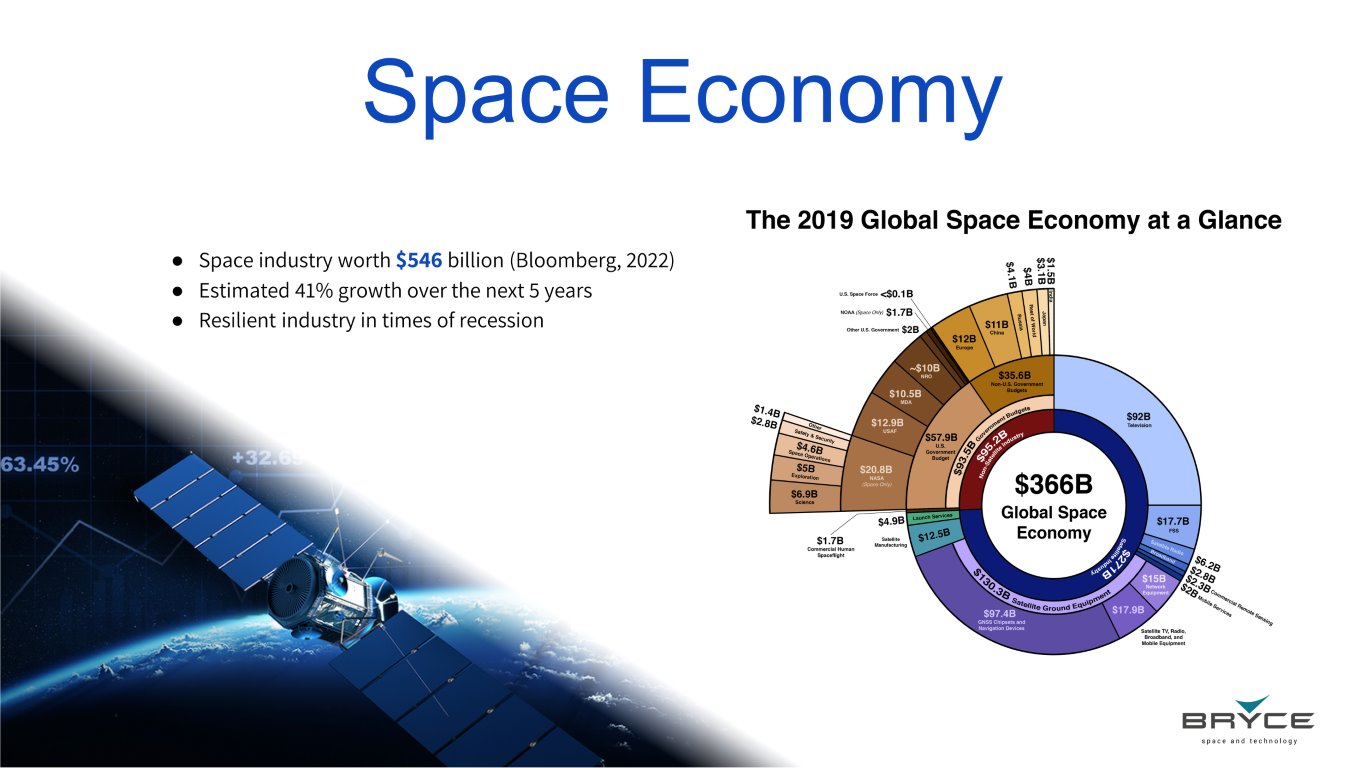
-
Cyprus Space Research and Innovation Centre (C-SpaRC)
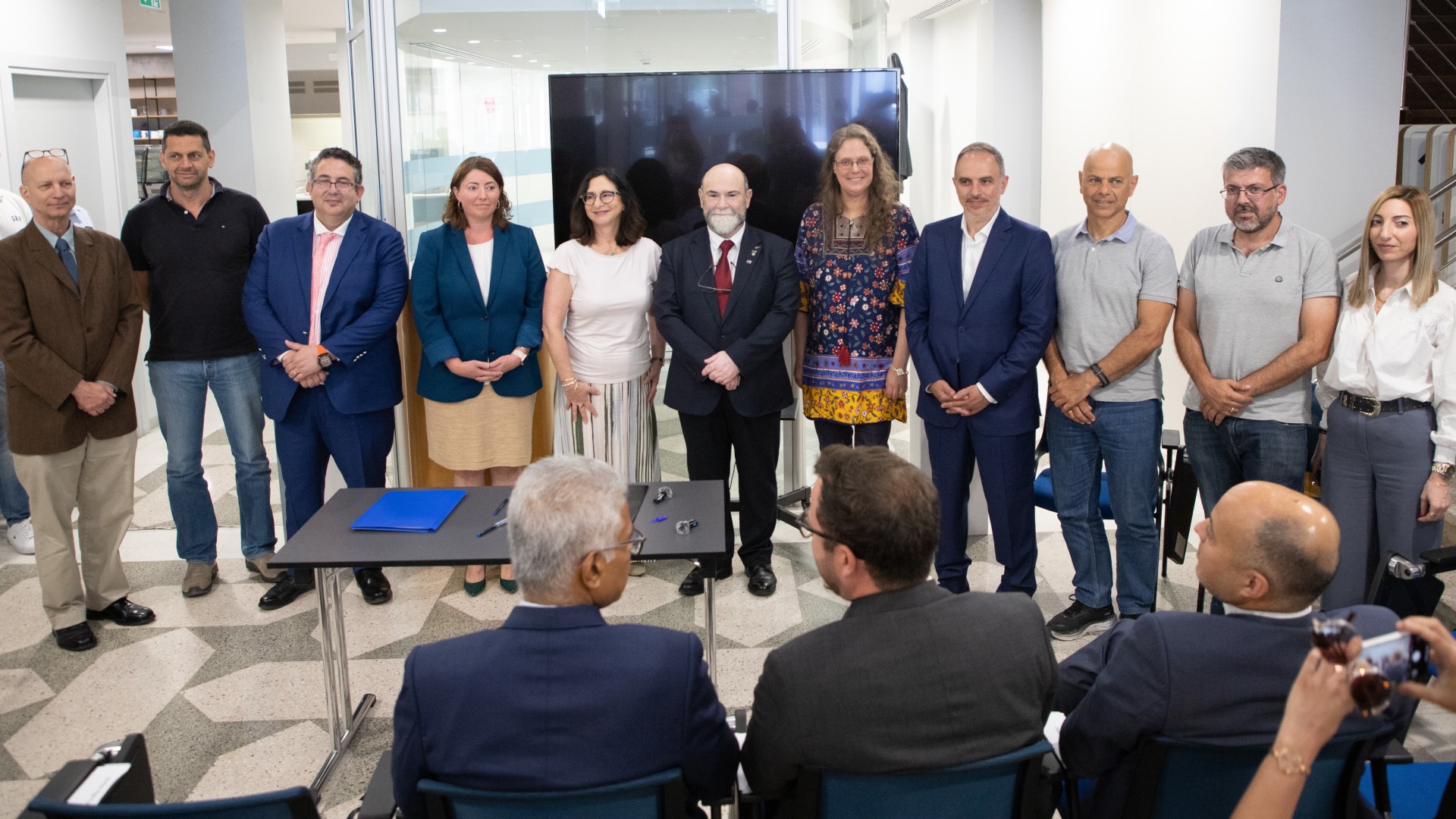
About C-SpaRC C-SpaRC Launch R&D Progress
C-SpaRC Launch - 26 June 2024 In a momentous occasion for Cyprus and the global space community, the Cyprus Space Exploration Organisation (CSEO) inaugurated the Cyprus Space Research and Innovation Centre (C-SpaRC), under the auspices of the Committee on Space Research (COSPAR), the world’s foremost space research organisation.

This landmark achievement was inaugurated by COSPAR Associate Director Aaron Janofsky. He announced that COSPAR placed C-SpaRC under its auspices, as a COSPAR Centre of Excellence, and designated it as “COSPAR’s International Space Innovation Centre”, which is poised to become a hub for groundbreaking research, technological development - a first-of-its-kind initiative aimed at fostering international collaboration in space research and exploration.
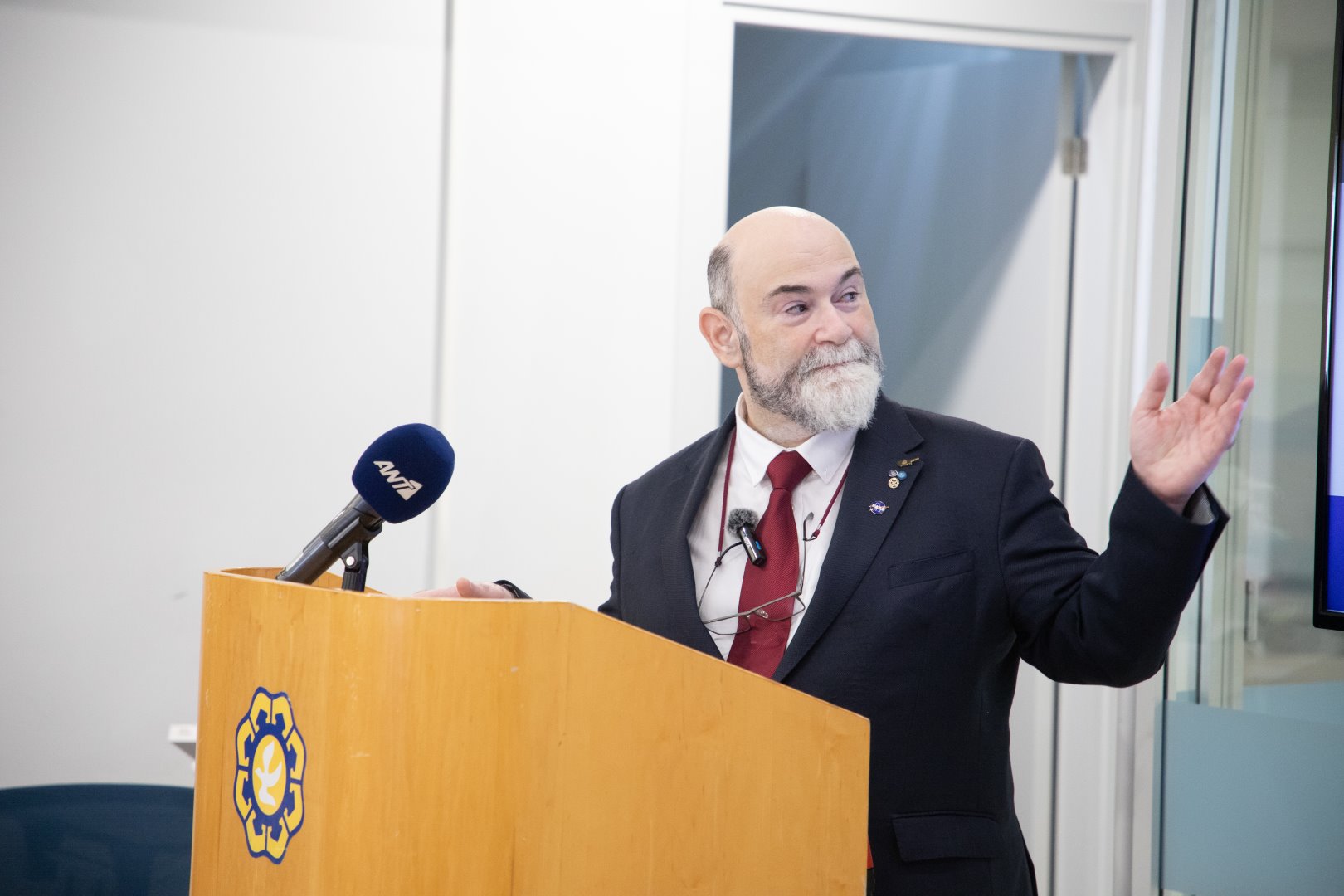
“The inauguration of C-SpaRC is a dream come true for Cyprus,” said George A. Danos, President of CSEO. “This is the culmination of years of dedication and collaboration with international partners, and it signifies Cyprus's unwavering commitment to pushing the boundaries of space exploration and research.” He added visibly moved with tears in his eyes “seeing our centre becoming the world's first international space innovation centre established under the auspices of the world’s foremost space research organisation, COSPAR, to bridge international collaboration in space is a very very proud and moving moment for all of us”.
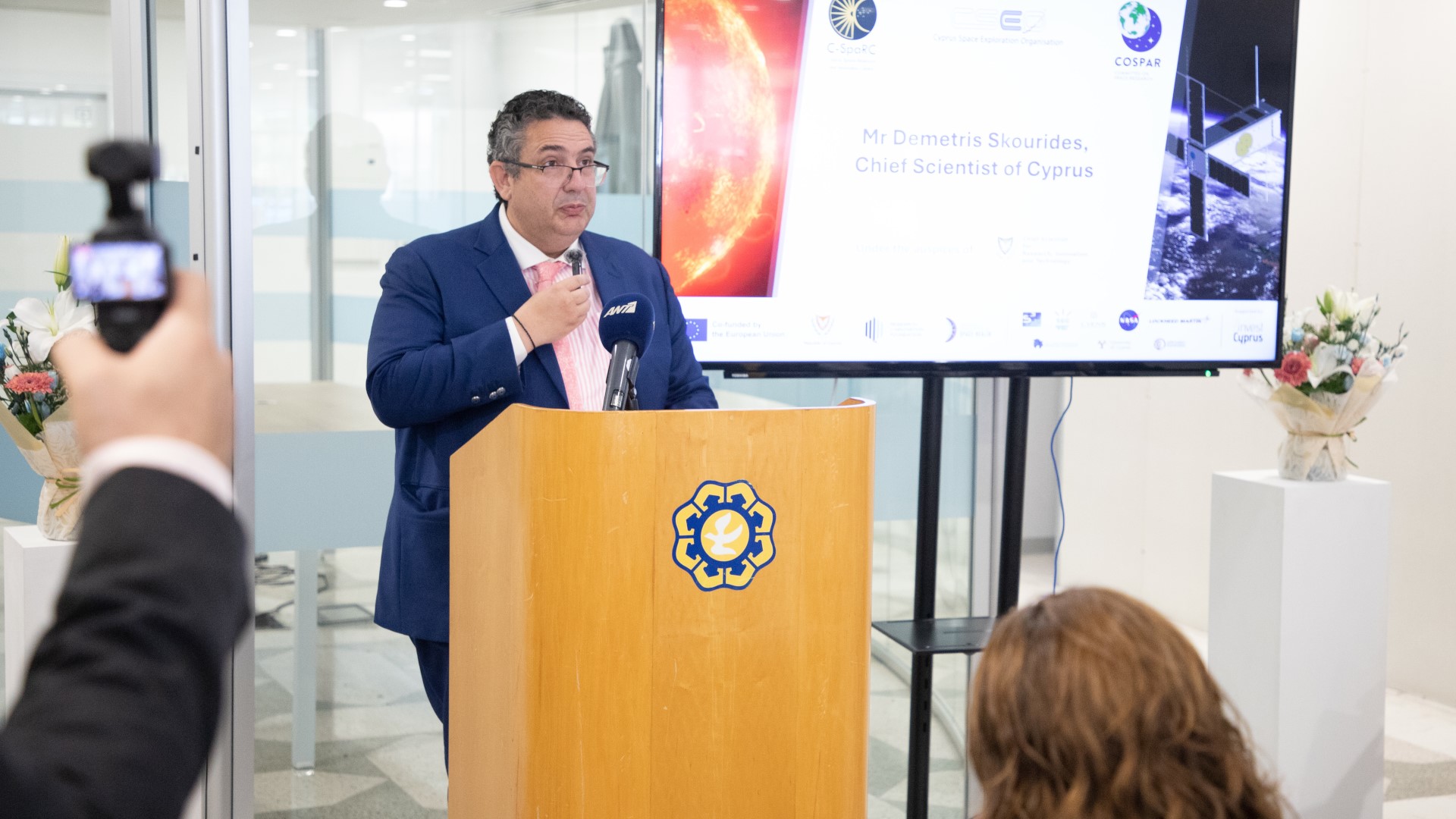
The inauguration ceremony took place under the auspice of Mr. Demetris Skourides, Chief Scientist of the Republic of Cyprus, whose strategy and actions have been catalytic in facilitating a thriving innovation ecosystem in Cyprus. In his speech he said: “The C-SpaRC project funded by the National Research Innovation Centre is a Game-changer for Cyprus, creating the conditions for Cyprus to become a global hub for research, innovation and technology. This strategic infrastructure will serve as a platform enabling collaboration between Cyprus based research organisations and global research organisations creating new opportunities for Cypriot researchers, and scientists who will from now on work alongside experts from NASA, ESA, COSPAR and other organisations. In addition to the research conducted and knowledge sharing, in less than 112 weeks, we expect to have the first Cyprus-built micro-satellite ready to be launched into orbit. A First of its kind for Cyprus!”
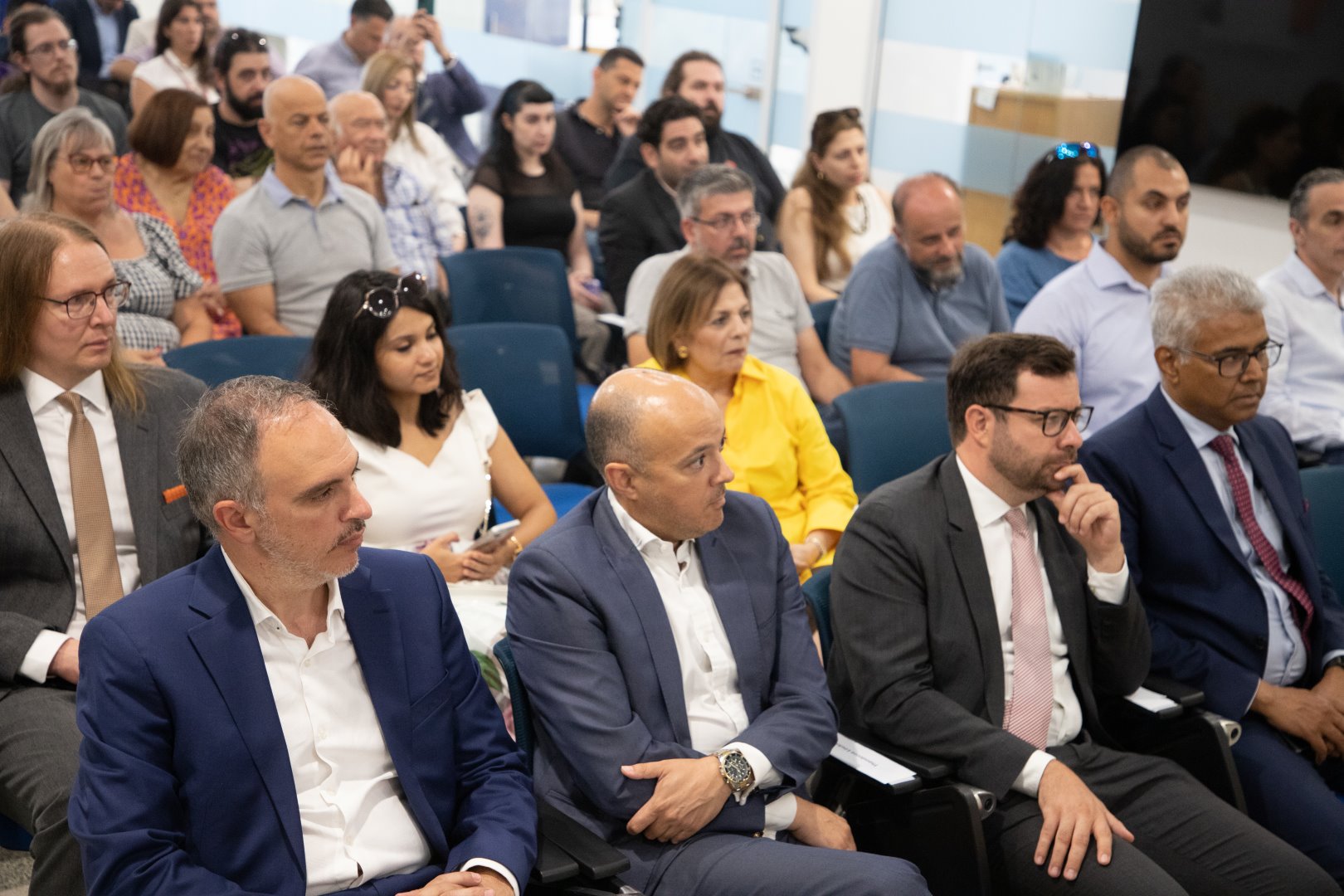
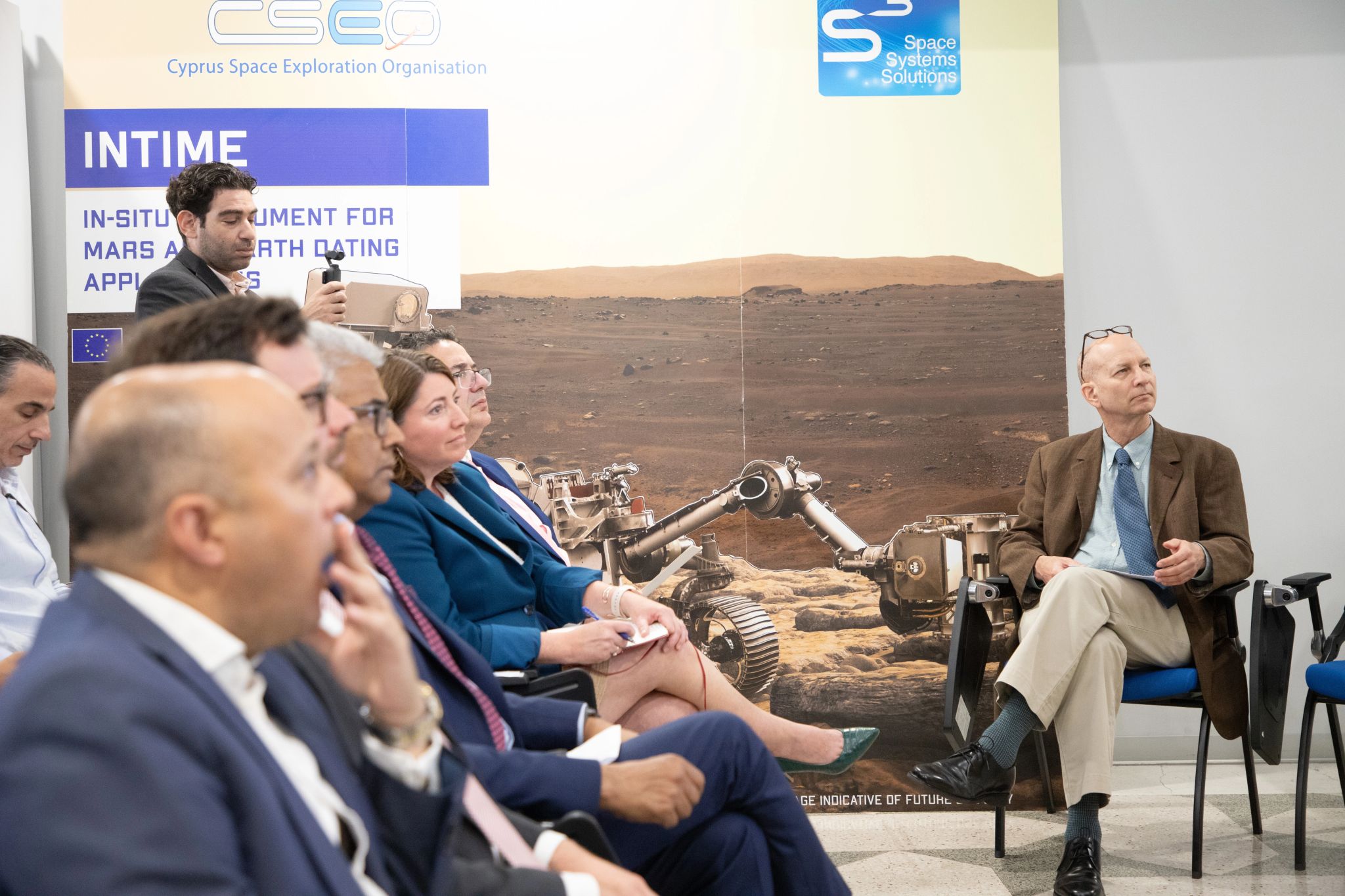
The ceremony was graced by the presence of all the research partners of the project, many distinguished guests such as Ambassadors and representatives from the Embassies of the USA, UK, France, Germany, Spain and India, Ministries, the RIF, the CCCI, Invest Cyprus, the Nicosia Municipal Council, as well as the new Mayor of Nicosia Mr. Prountzos.
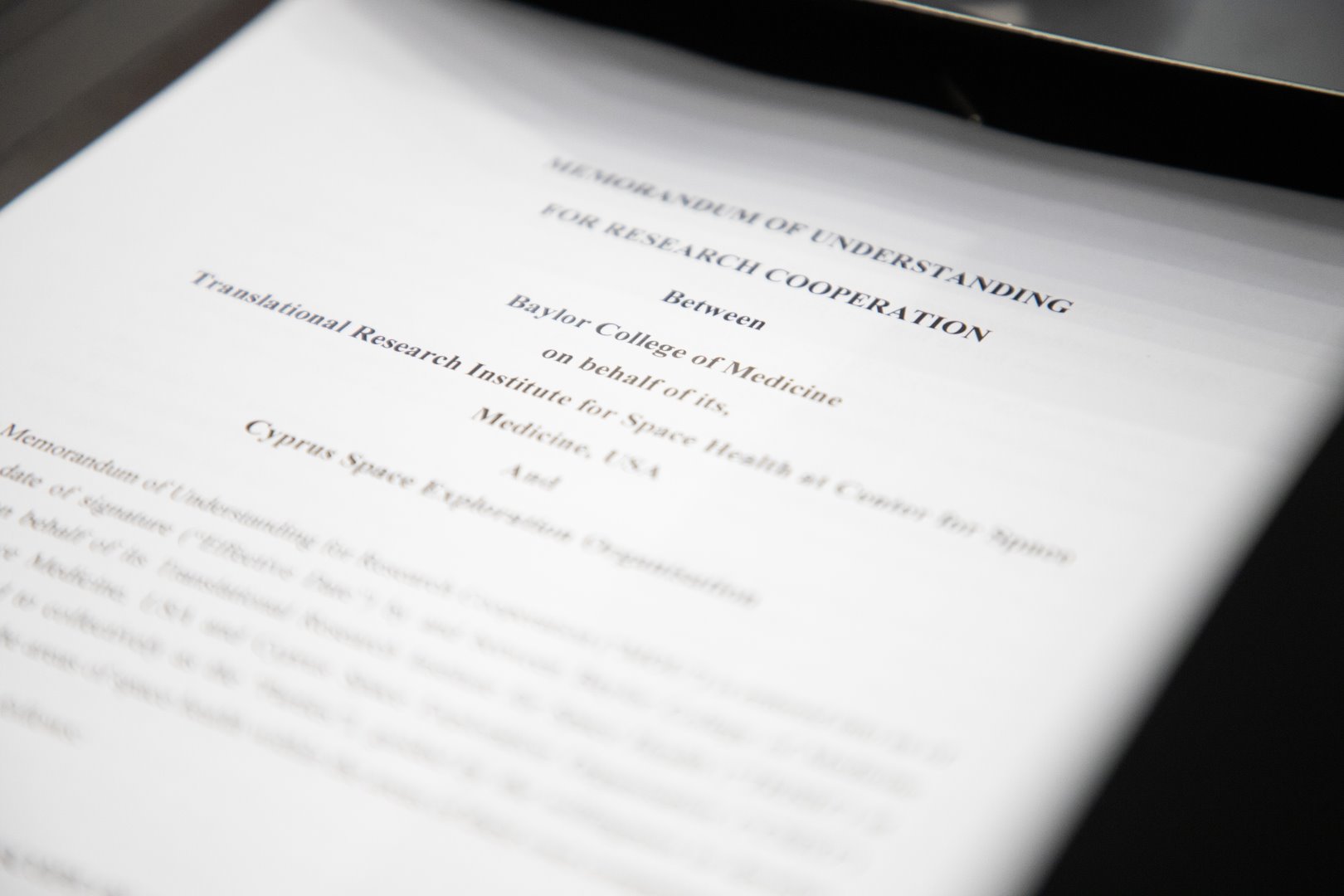
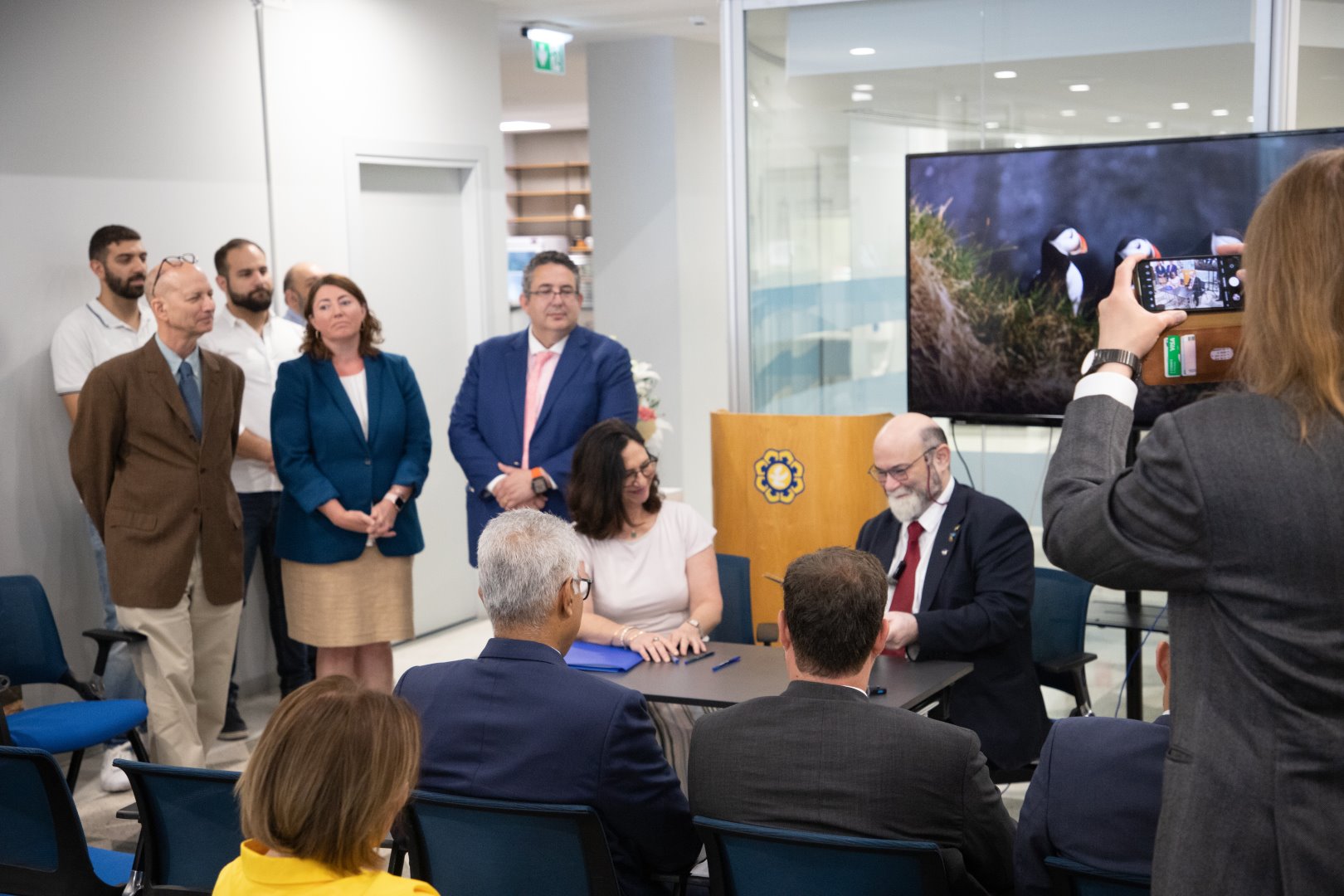
A highlight of the ceremony was the signing of a Protocol of Cooperation between CSEO and TRISH. This collaboration will focus on researching the health challenges of human deep space exploration, ensuring the safety and well-being of astronauts on future NASA missions to the Moon and Mars. “This partnership with TRISH is a significant step forward in our quest to understand and mitigate the risks associated with human spaceflight,” said Mr. Danos. “By working together, we can develop innovative solutions that will not only benefit astronauts but also have potential applications for healthcare on Earth.”
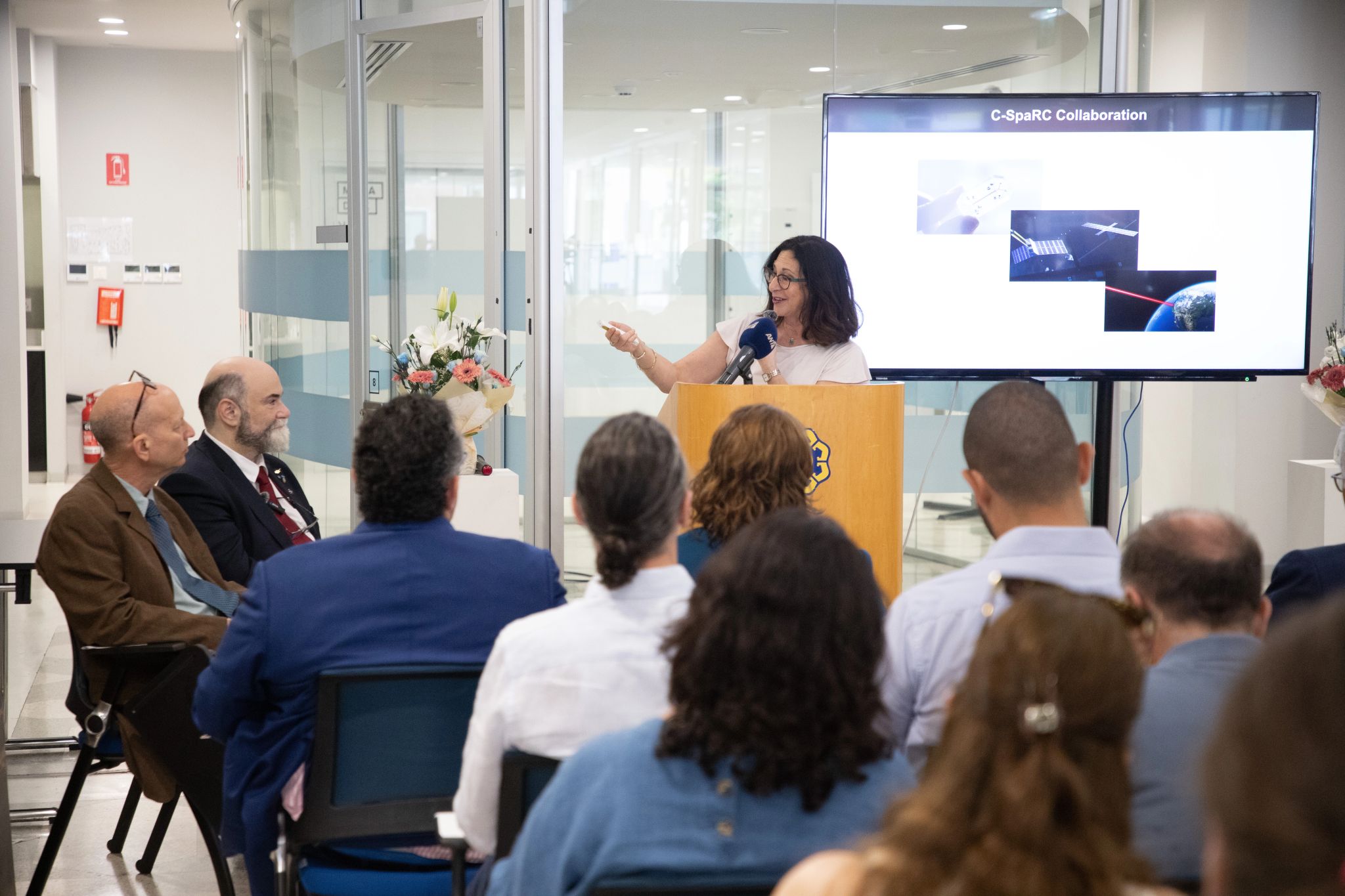
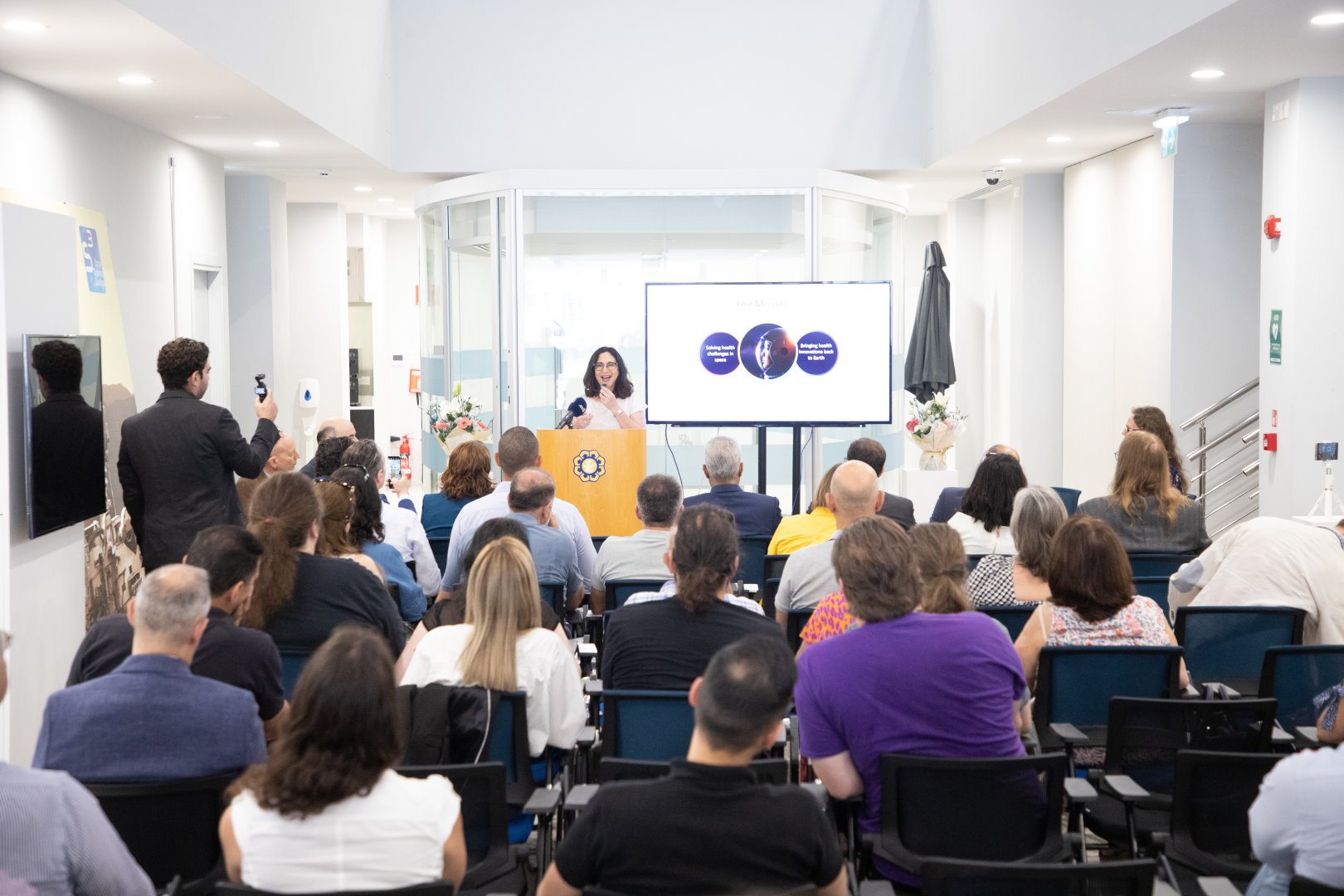
Dr. Dorit Donoviel, Executive Director of NASA funded Translational Research Institute for Space Health (TRISH), highlighted the importance of this collaboration in order to safely send humans to the moon and explained that in all of this the role of Cyprus and C-SpaRC is pivotal. She explained that the research that will be conducted will bring benefits to all of us, with the use of state-of-the-art organs-on-chip which can bring personalised treatments to diseases based on our specific genetics.
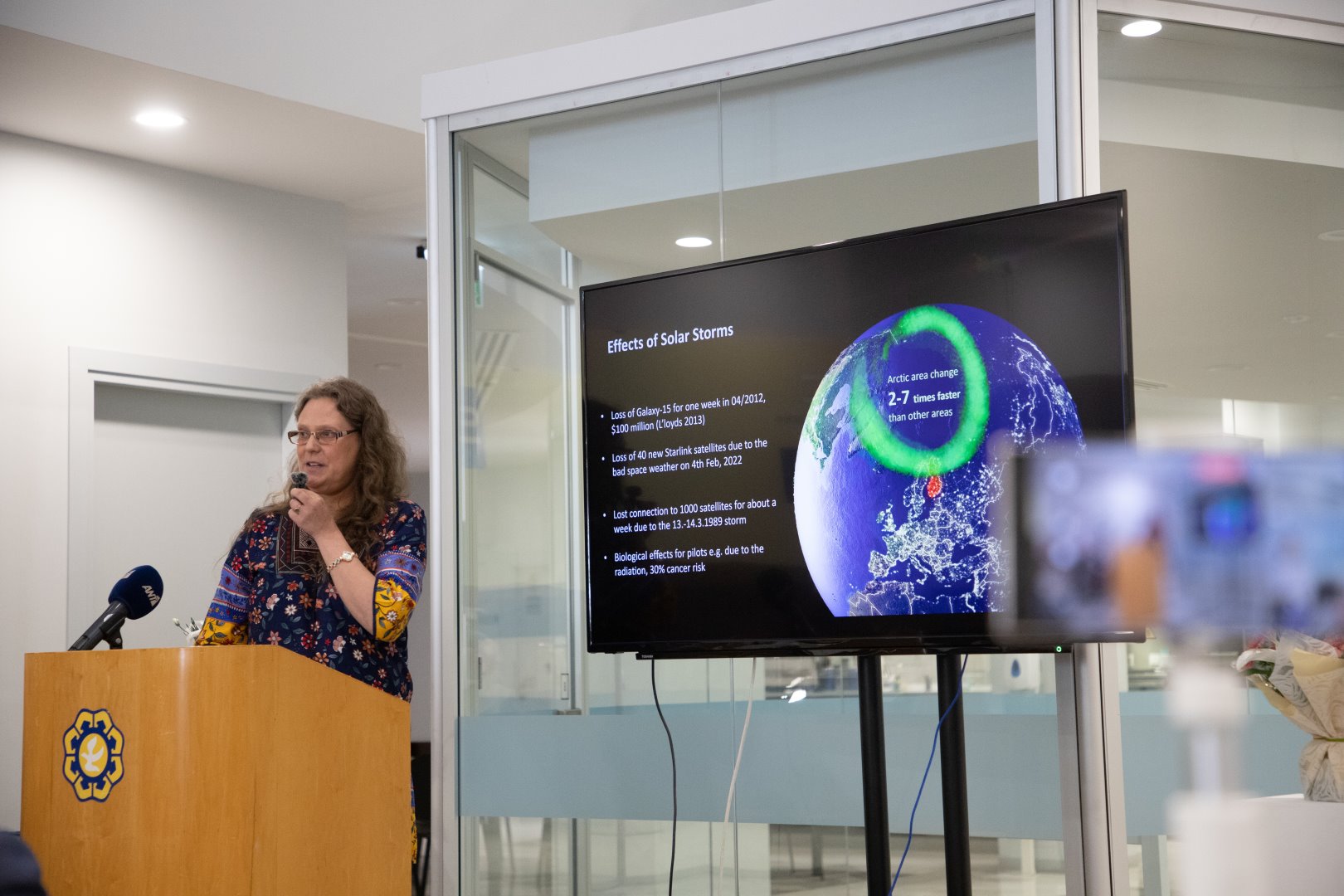
Prof. Eija Tanskanen, Director of Sodankylä Geophysical Observatory, a separate unit of University of Oulu, a world class facility (since 1913) that studies the impact of the Sun and Space Weather to our health and technologies, explained that this collaboration between CSEO, Sodankylä, and TRISH is an absolute necessity for Europe and international research to model, forecast and protect us from solar storms.
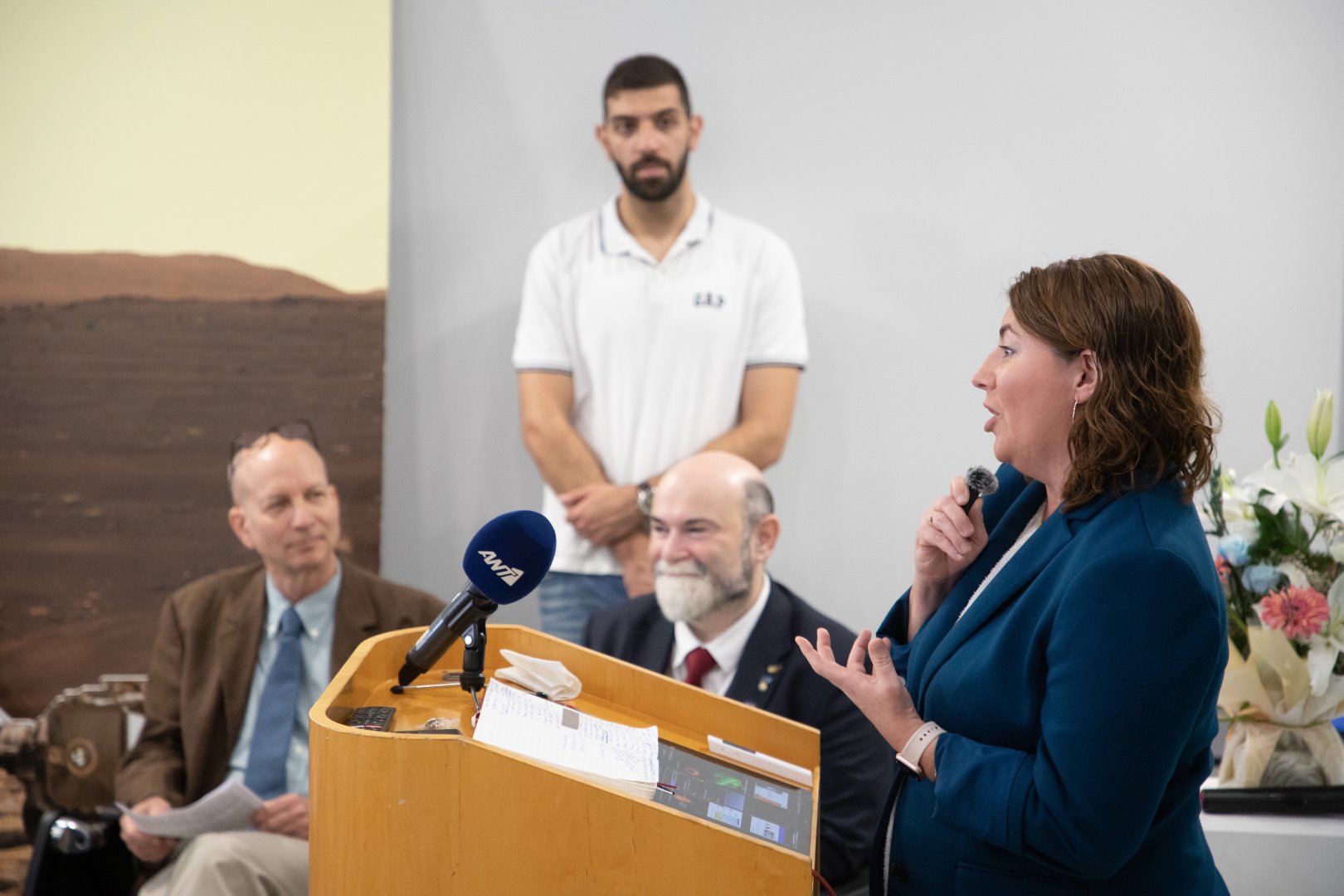
Ms Justine Treadwell, Political & Economic Chief of the U.S. Embassy, in her remarks said that with these presentations she gained a strong appreciation of the importance of the research that is being conducted by scientists for the return to the moon and the protection of our planet. She added that the next steps are being taken to scientific space research and international collaboration from here in Cyprus that’s hosting this important international centre with its important geographical location.
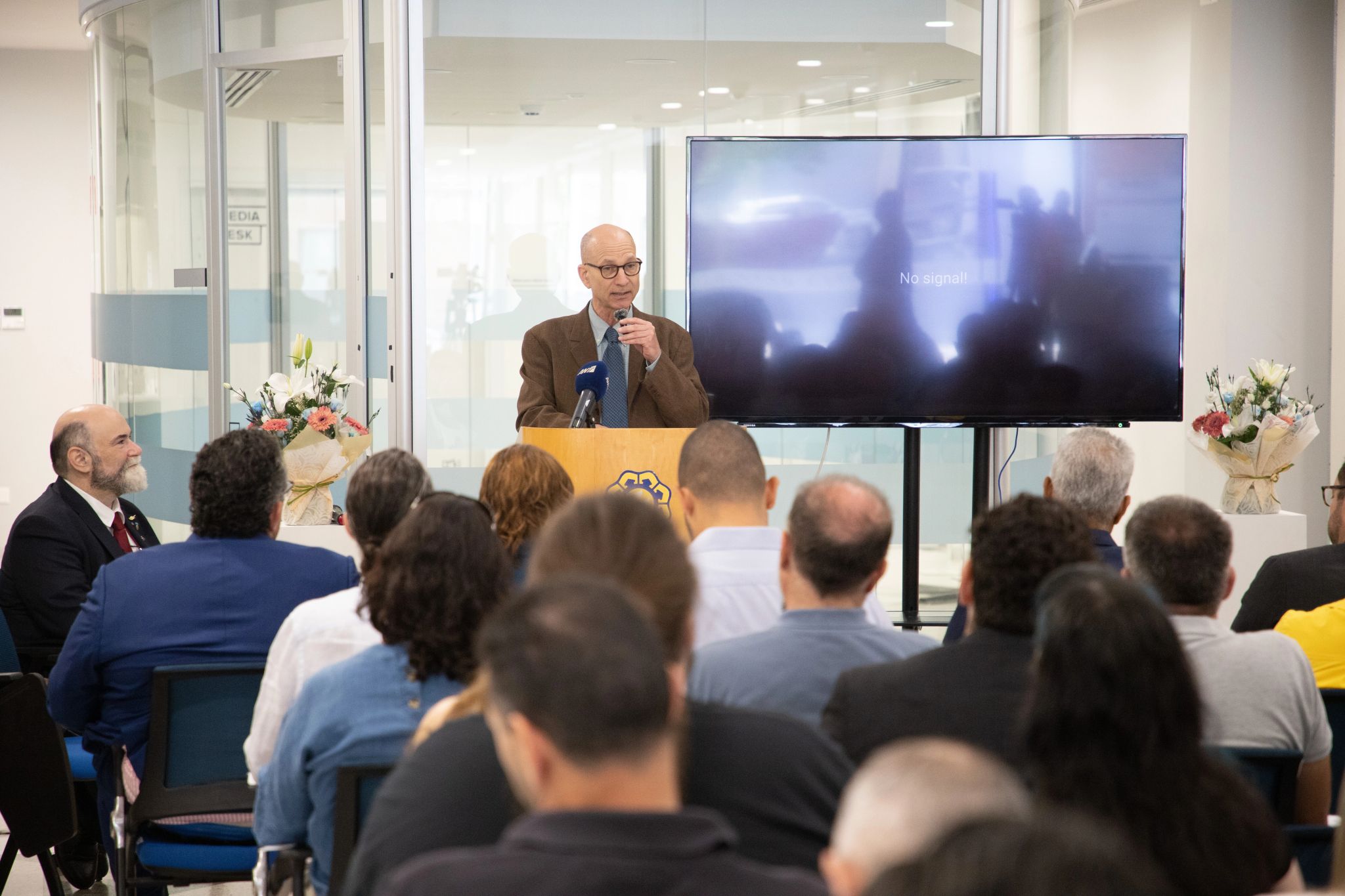
And last but not least, all these were wrapped together with the announcement from COSPAR that the next COSPAR Space Symposium will be hosted in Cyprus by CSEO in November 2025 with the international space community gathering in Cyprus.
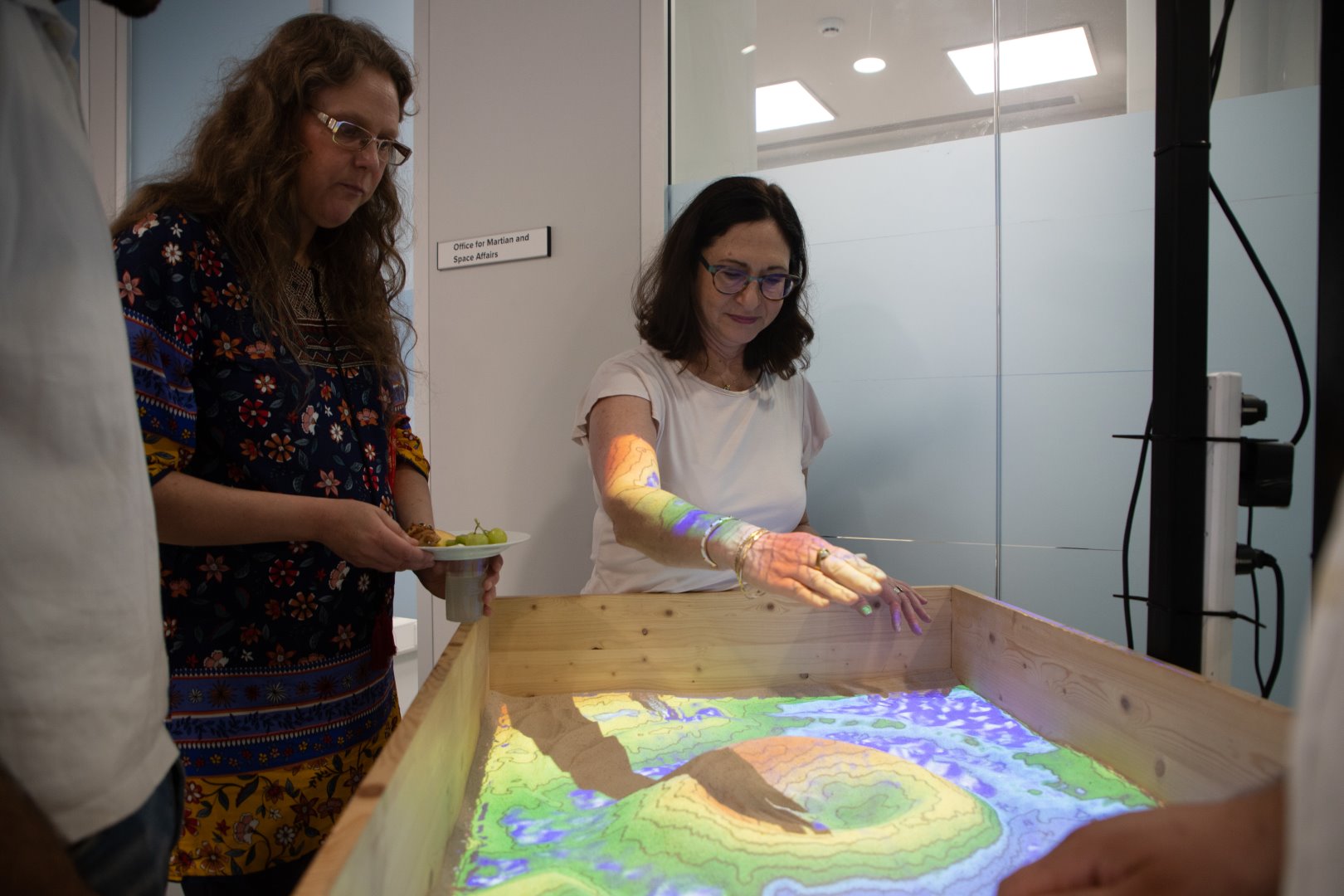





-
Cyprus Space Research and Innovation Centre (C-SpaRC)
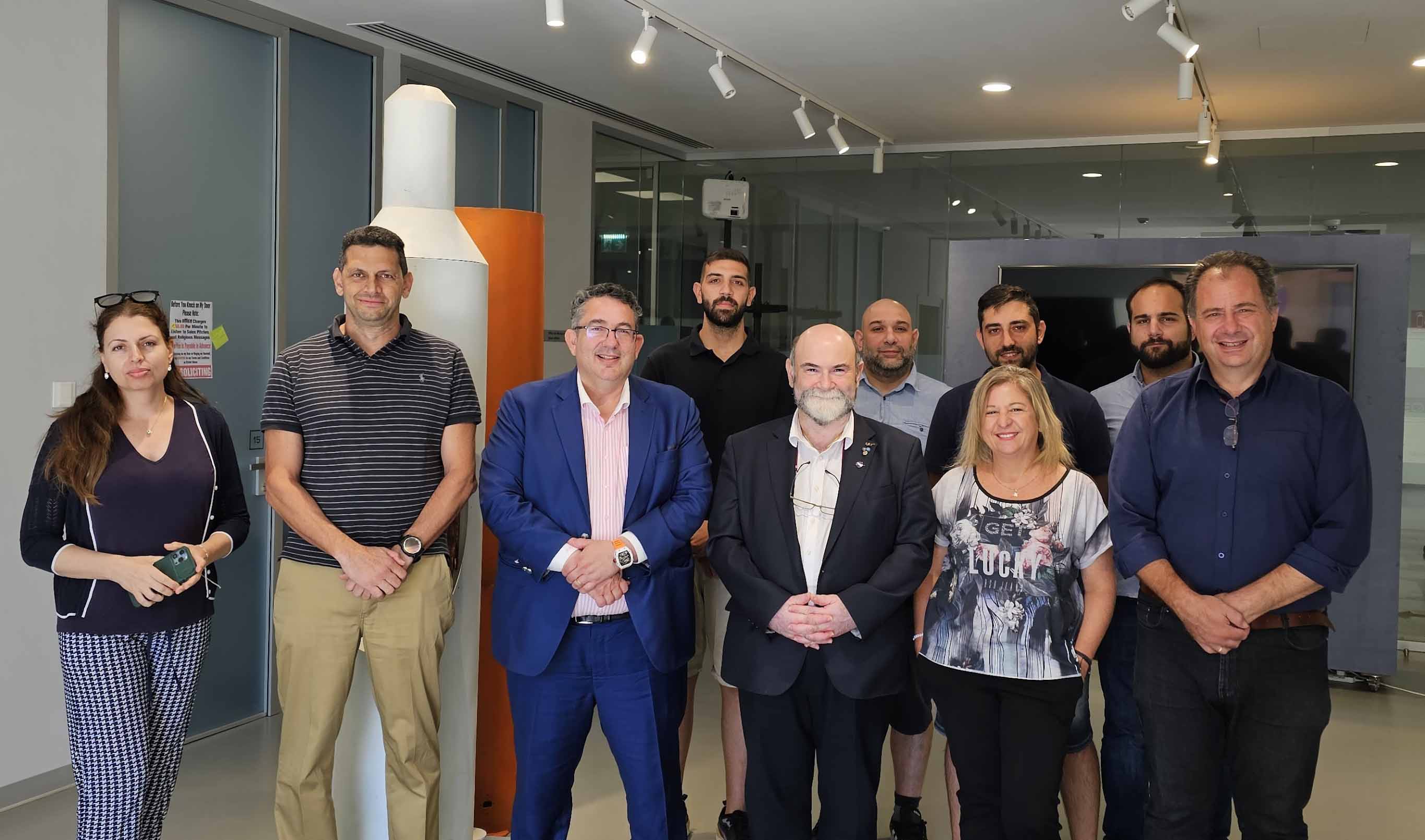
About C-SpaRC C-SpaRC Launch R&D Progress
C-SpaRC Project Progress Report: July 2024 Mr. Skourides visited C-SpaRC to assess the project's progress firsthand. He received detailed briefings from both international and domestic partners, showcasing the advancements and future plans for the three key research areas: Space Weather impact on human biology, Space Weather predictive modelling and Space Situational Awareness (SSA), and the Small Satellite Programme. International partners, including Sodankyla Geophysical Observatory (SGO), University of Oulu, Finland, and domestic partners, including Space Systems Solutions (S3) Ltd, CYENS Centre of Excellence, the Cyprus Institute of Neurology and Genetics (CING), University of Cyprus, and Aretaeio Hospital, convened for the briefings.
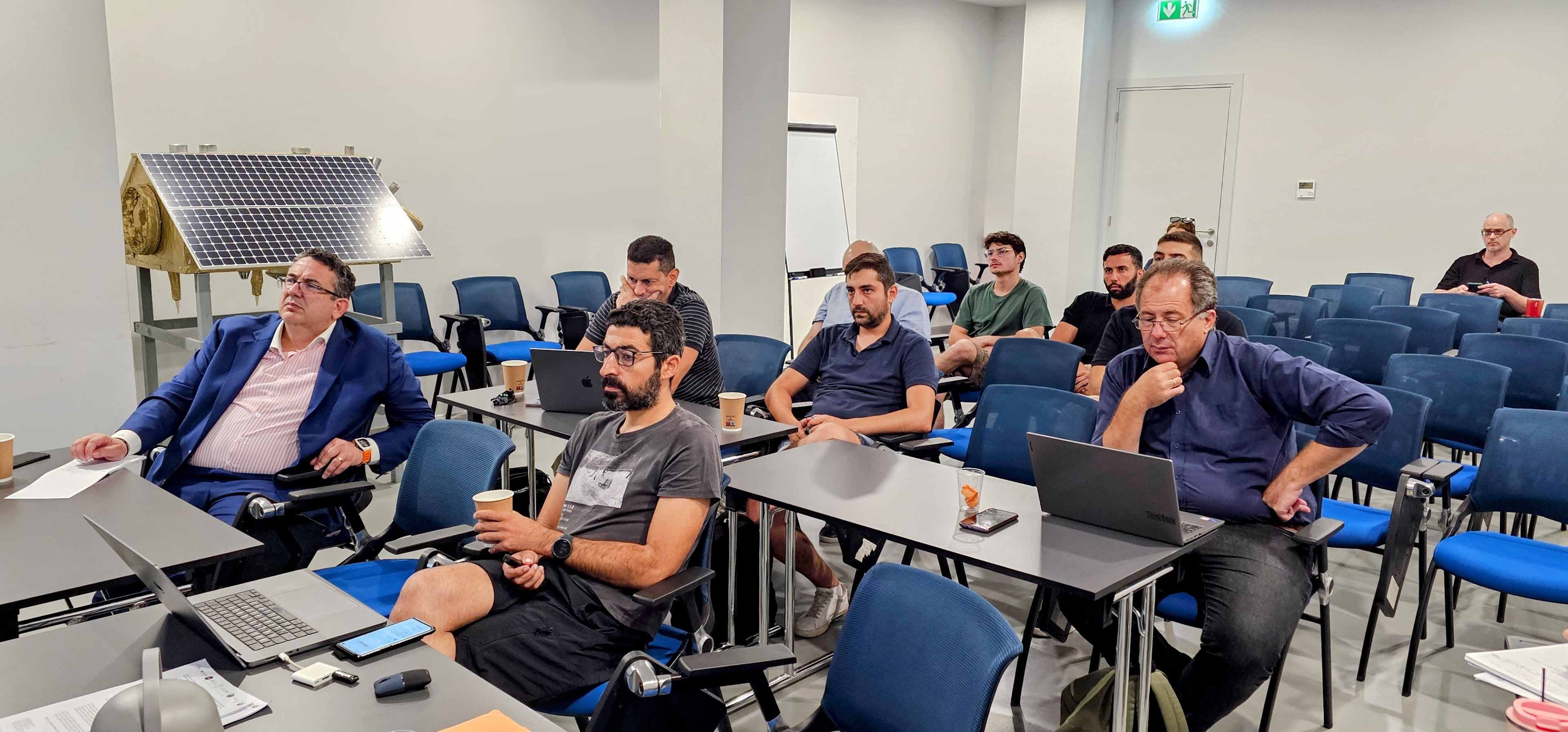
C-SpaRC is organised into six work packages (WPs), each focusing on a specific aspect of the project:
- WP1: Project Management
- WP2: Dissemination & Exploitation Activities
- WP3: Equipment Infrastructure
- WP4: AI Predictive Modelling of SWx and Multifactorial Impact
- WP5: SmallSat Program for Space-Borne Research
- WP6: Applied ICT: SWx Impact on Human Biology (Space & Ground)
This report details the progress made on WPs 3-6 since the project's inaugural ceremony on June 26th, 2024. WP3: Equipment Infrastructure Mr. Kyriakos Michael (CSEO) presented the progress on procuring and installing the state-of-the-art equipment that will form the core infrastructure of C-SpaRC. The equipment, once operational, will be accessible to members of the Cyprus Space Cluster and the wider high-tech community via an open access policy, fostering collaboration and knowledge transfer. This capability is essential for developing reliable and space-qualified technologies, a crucial step towards achieving full ESA membership for Cyprus.

The key equipment includes:
- Thermal Vacuum Chamber: This chamber simulates the harsh temperature and vacuum conditions of space, allowing companies to test the performance and durability of their products in extreme environments.
- Vibration Facility: This facility simulates the intense vibrations experienced during launch, enabling companies to test the structural integrity of their products and ensure their resilience against the stresses of spaceflight.
- Clean Room: This controlled environment, free from contaminants, will be essential for the assembly of sensitive components like small satellites and other high-precision instruments. Access to a clean room will allow Cypriot companies to participate in the development and manufacturing of advanced technologies, contributing to the growth of the national space industry.
- Selective Laser Melting (SLM) 3D Printing Setup: This cutting-edge technology offers unprecedented design flexibility and manufacturing capabilities, enabling the production of lightweight, high-performance components for diverse sectors, including space. This will foster innovation and create new opportunities for Cypriot companies in the rapidly growing global space economy.
The procurement process for the equipment is well underway, with delivery and installation expected to be completed by Q1 2025. WP4: AI Predictive Modelling of SWx and Multifactorial Impact The Cyprus Space Exploration Organisation (CSEO) coordinates a collaborative effort with Sodankyla Geophysical Observatory (SGO) and CYENS Centre of Excellence to enhance space weather prediction, aiming to increase advance warning time from hours to days. C-SpaRC leverages SGO's long-term observations and expertise, NASA data, and CYENS' AI proficiency.
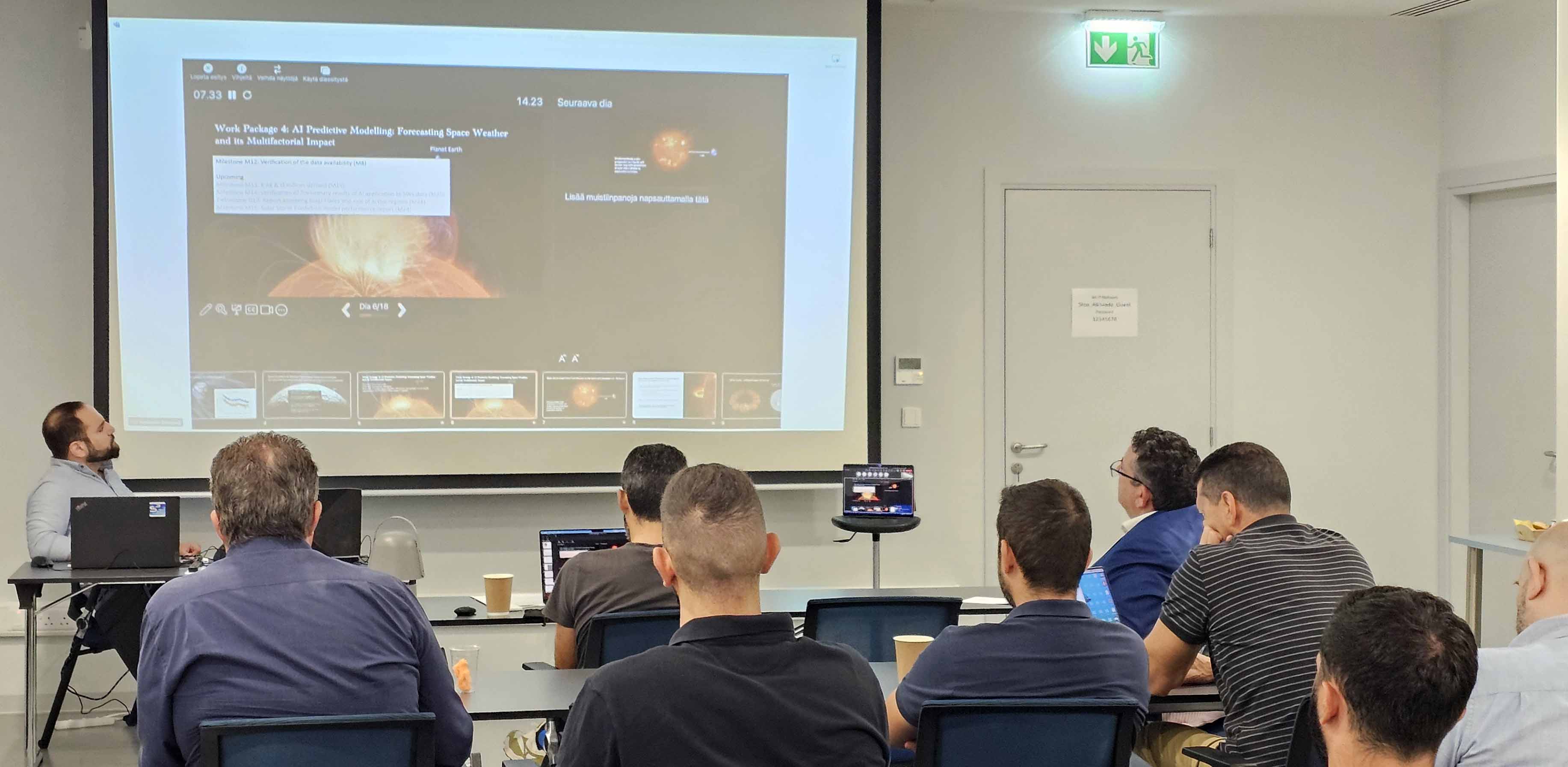
Prof. Eija Tanskanen (SGO) and Dr. Andreas Kamilaris (CYENS) presented the progress on developing AI-powered predictive models for space weather events. The goal is to improve the accuracy and lead time of space weather forecasts, moving from minutes to days, and ultimately contributing to a robust Space Situational Awareness (SSA) capability for Cyprus. Prof. Tanskanen highlighted their contributions, including data on the Earth's magnetic field, solar disturbances, cosmic particles, and space objects. CYENS focuses on developing predictive models, particularly for high-intensity solar flares, aiming to provide astronauts with significantly longer warning times.
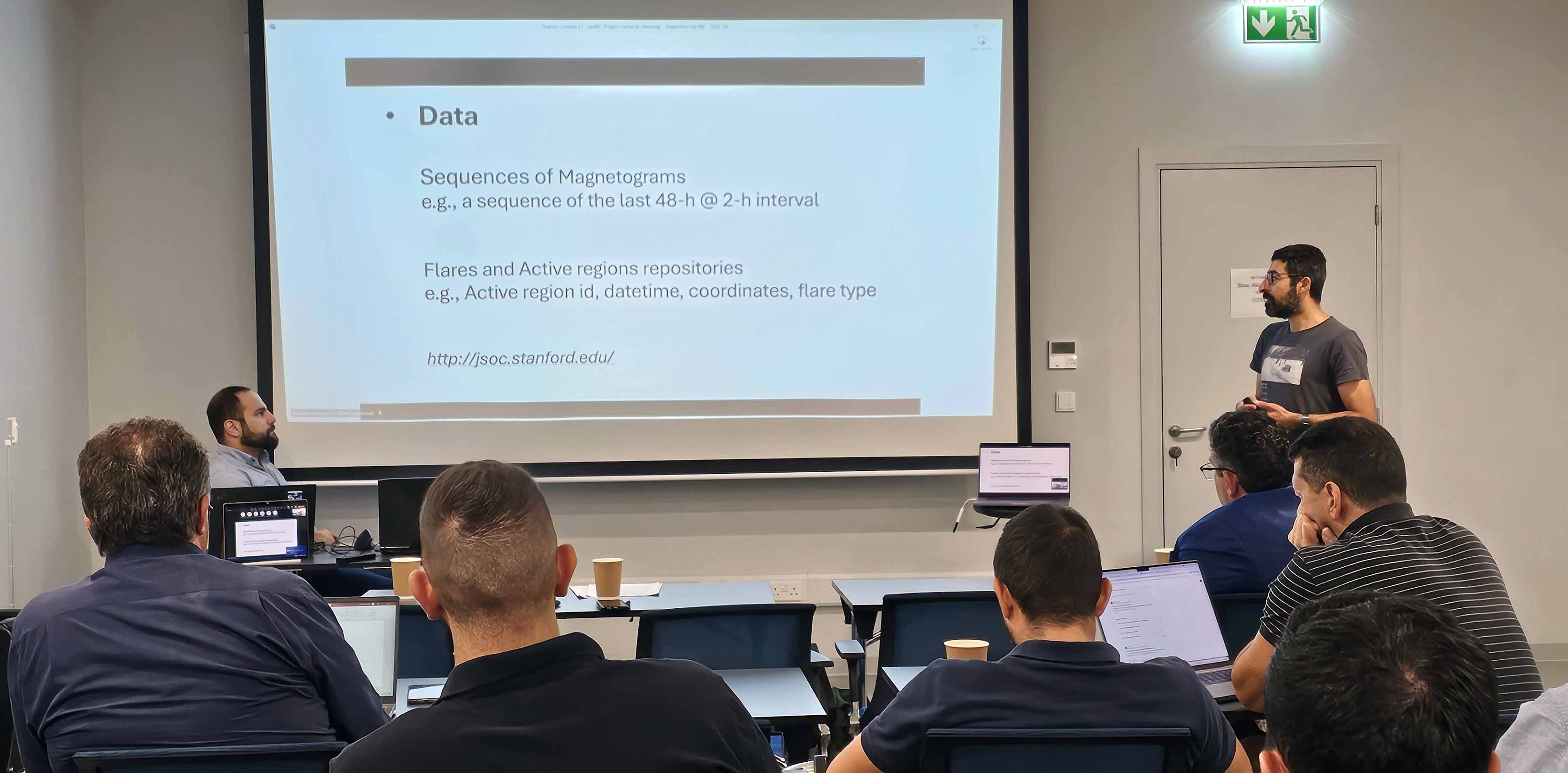
Dr. Andreas Kamilaris from CYENS presented AI models showing promise in forecasting active regions likely to produce flares, especially high-intensity ones. Challenges include incomplete or inaccurate data and the need to translate solar coordinates. Despite these limitations, the model can predict dangerous active regions. Two key AI models were developed:
- Predicting high-intensity solar flares: CYENS has developed an AI model, trained on historical flare data, capable of predicting which active regions on the sun will produce a flare within the next 4 days. The model shows promising results, especially in predicting high-intensity flares, and is currently being analyzed by collaborating space scientists to determine its accuracy and refine its prediction capabilities.
- Classifying active solar regions: A second AI model, developed by CYENS, successfully identifies the class of an active region according to the Mount Wilson classification, which characterises the intensity, size, and complexity of its magnetic field. This model complements the flare prediction model and is being further refined based on expert feedback.
WP5: SmallSat Program for Space-Borne Research Mr. George Danos (CSEO) presented the progress on the SmallSat program, highlighting the collaborative effort involving top experts from three continents to define the payload, specifications, operations, and tasks for the first Cypriot-built SmallSat. The team is leveraging the expertise of these international partners to ensure the success of the program and the development of a robust and versatile SmallSat platform.

UCY is currently in discussions with CSEO to contribute to the program by developing additional science payloads, such as space radiation-resistant microelectronics, for integration into the SmallSats. The first SmallSat, scheduled for completion in Q3 2026, will focus on collecting space weather data, supporting research on space weather impact on human biology and predictive modelling. Subsequent SmallSats will be deployed to expand the data collection capabilities and address other sectors, such as environmental monitoring, maritime surveillance, and telecommunications. S3, the lead partner for this WP, is well underway in the initial design phase of the first SmallSat, defining its mission profile, orbital mechanics, and launch date profiles. The team is now working on the detailed design and engineering of the SmallSat subsystems. WP6: Applied ICT: SWx Impact on Human Biology (Space & Ground) Dr. George Spyrou (CING) presented the progress on understanding the impact of space weather on human biology, a critical area of research for ensuring the safety and well-being of astronauts on future missions. CING is collaborating with NASA's TRISH to develop a space-borne human factors organs-on-a-chip payload, which will be used to study the effects of space radiation on human tissues at a cellular level.
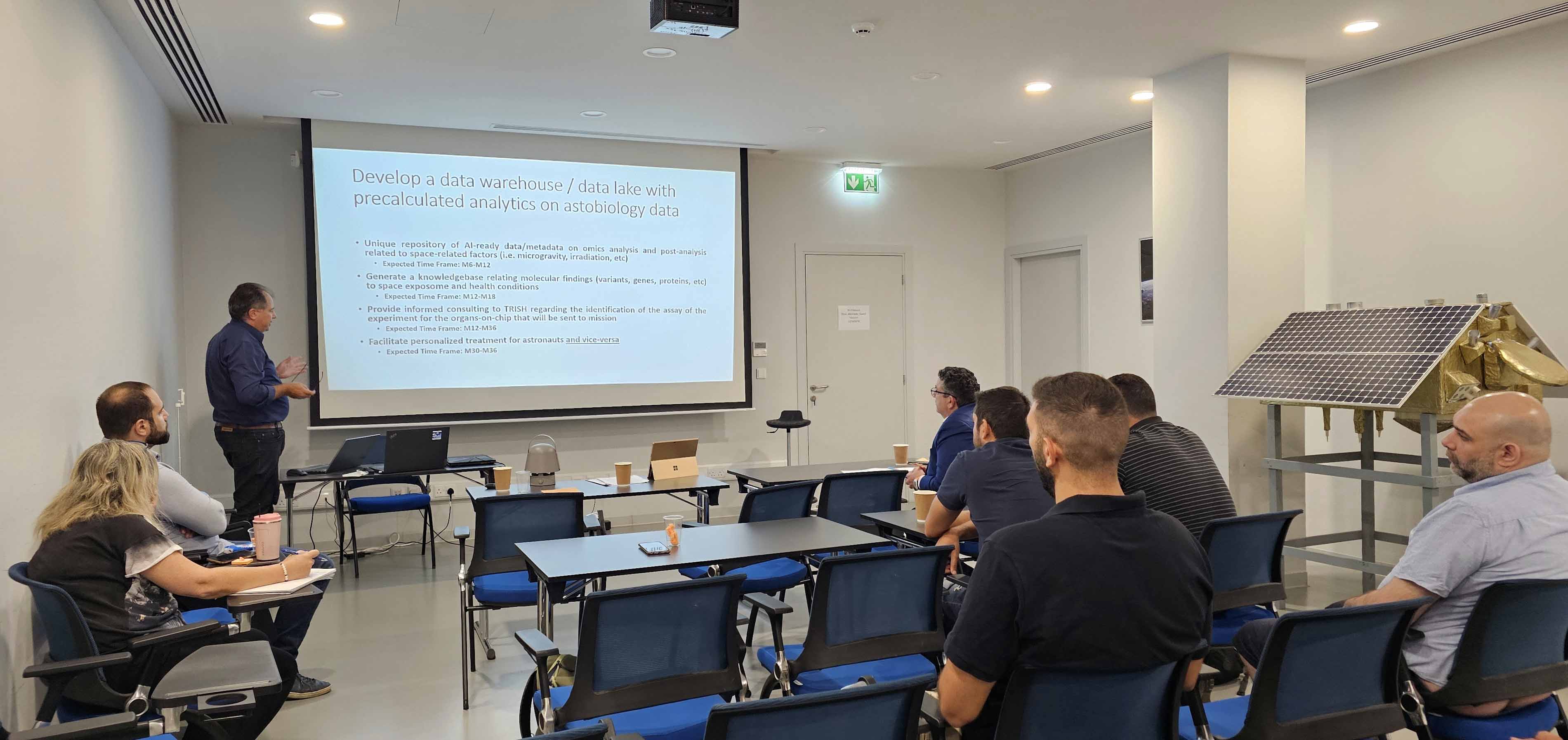
CING has already begun collecting and analysing publicly available omics data related to space-related factors, such as microgravity and radiation, from NASA and other organisations. Their roadmap for developing the organs-on-a-chip payload includes:
- Creating a unique repository of AI-ready data/metadata on omics analysis and post-analysis related to space-related factors.
- Generating a knowledgebase linking molecular findings (variants, genes, proteins, etc.) to space exposome and health conditions.
- Developing personalised treatment for astronauts, translating these findings to personalised medicine on Earth.
In addition to spaceflight, C-SpaRC is also investigating the impact of space weather on human health in aviation and on the ground. Aretaeio Hospital, a key partner in this research, is actively compiling and organising years of clinical data on cardiovascular, cancer, and other relevant health conditions.

Mr. Stelios Yiallouros, CIO of Aretaeio Hospital - Member of HHG, reported that the hospital has collected anonymised epidemiological data from 2006 to 2024, encompassing many thousands of patient cases. This data, combined with space weather data from SGO and other sources, will be analyzed by CYENS to identify potential correlations between solar storms and specific health issues. The aim is to develop new preventive measures and treatments for a range of conditions. Mr. Yiallouros confirmed that the hospital aims to make the compiled data available for analysis within eight weeks. Additionally, a specifications list of parameters to be included in the study will be provided and presented within the next 8 weeks. Conclusion C-SpaRC has made significant progress since its launch in January 2024 and its inauguration in June 2024. The project is on track to deliver a world-class research infrastructure, advance groundbreaking research, and foster a thriving space ecosystem in Cyprus. The collaborative efforts of the international and domestic partners are driving innovation and positioning Cyprus as a key player in the global space industry. Summary:
Work Package Progress Future Work WP3: Equipment Infrastructure
CSEO & S3Establishing a state-of-the-art space research infrastructure
Procurement process for key equipment underway (thermal vacuum chamber, vibration facility, clean room, etc.).
SLM 3D printing delivered, setup pending.Complete delivery and installation of all equipment by Q1 2025. WP4: AI Predictive Modelling of SWx and Multifactorial Impact
SGO & CYENSDeveloping AI-powered predictive models for space weather events
Developed two AI models:
1) Solar Flare Prediction Model (predicts flares 4 days in advance, high precision).
2) Active Region Classification Model (identifies region class, good precision, moderate recall).Analyze model performance with space scientists, refine prediction capabilities, aim for prediction lead times of days. WP5: SmallSat Program for Space-Borne Research
CSEO, S3 & UCYDesigning, building, and launching a fleet of SmallSats for Earth observation and space weather research
First SmallSat's initial design phase underway, outlining mission, orbit, and launch dates. Team focusing on detailed subsystem design, leveraging global expertise.
UCY in discussions to develop science payloads.Complete detailed design and engineering of SmallSat subsystems.
Target completion date Q3 2026.WP6: Applied ICT: SWx Impact on Human Biology (Space & Ground)
TRISH, CING & AretaeioUnderstanding the impact of space weather on human biology in space, aviation, and on the ground
CING initiated collection and analysis of public omics data related to space factors.
Aretaeio Hospital compiled and organised 15 years of clinical data.Create AI-ready database linking molecular findings to space exposome and health. Develop personalised treatment for astronauts, translate to Earth. Correlate space weather with clinical data. -
C-SpaRC Project Activity Calendar
Select an event to see details
-
Get in touch
Main telephone:
+357 22 357 700
Address:
Cyprus Space Research and Innovation Centre (C-SpaRC),
Cyprus Space Exploration Organisation (CSEO),
Plateia Dimarchias 23,
Nicosia 1016, Cyprus
Google Map:
☰
